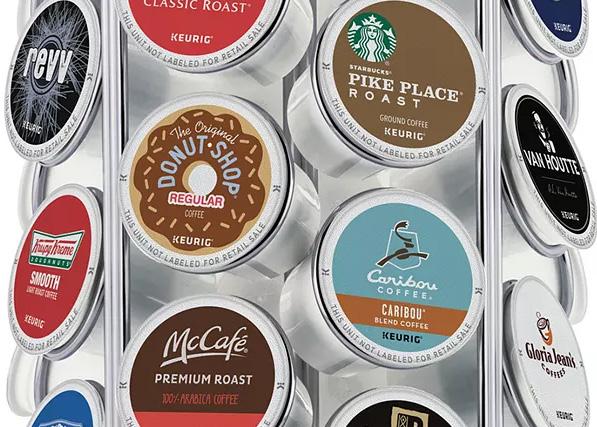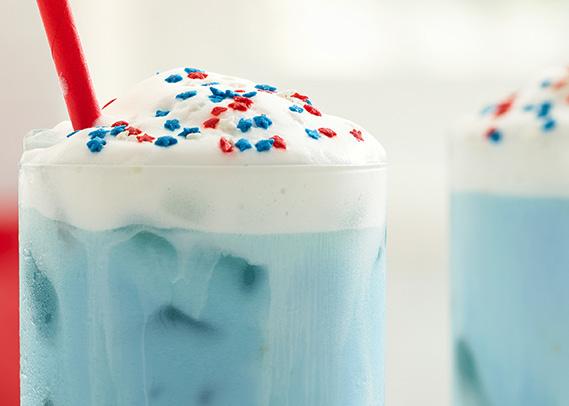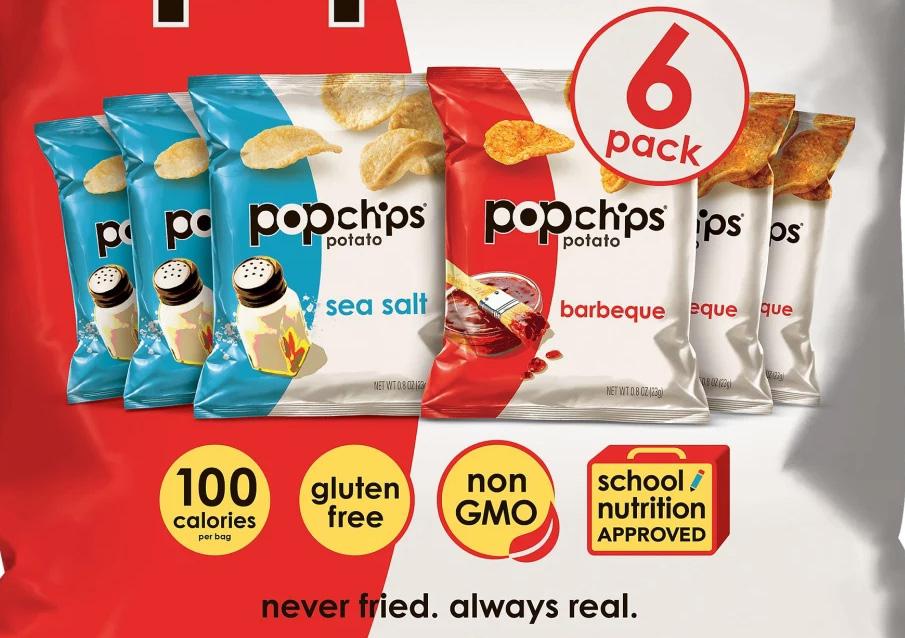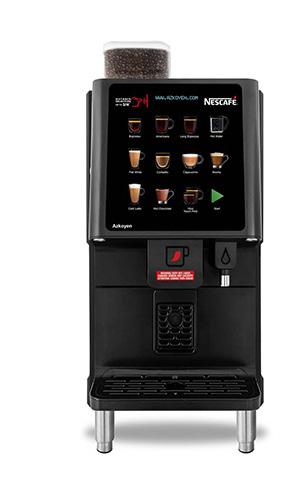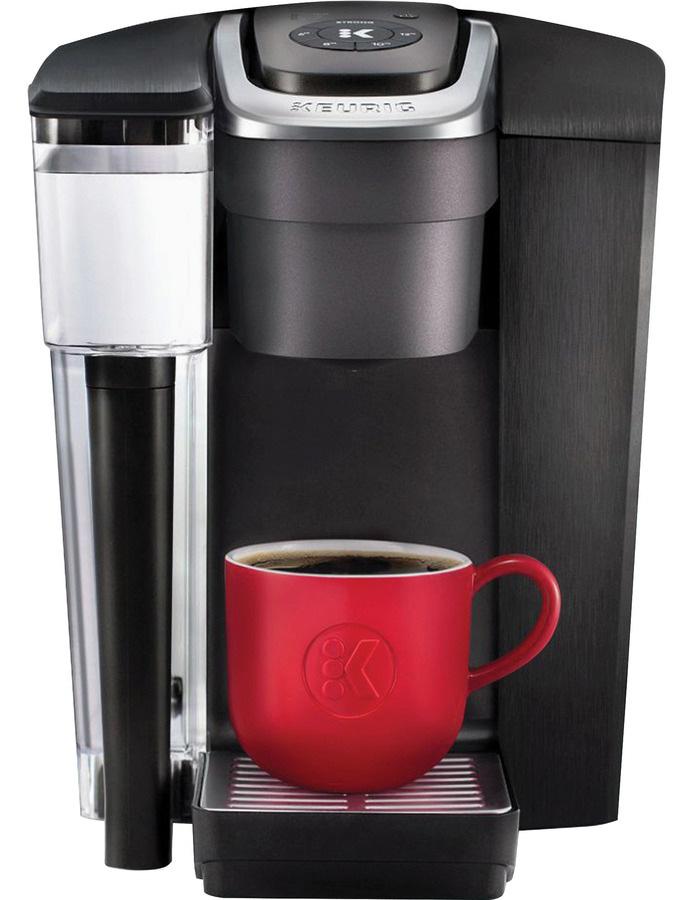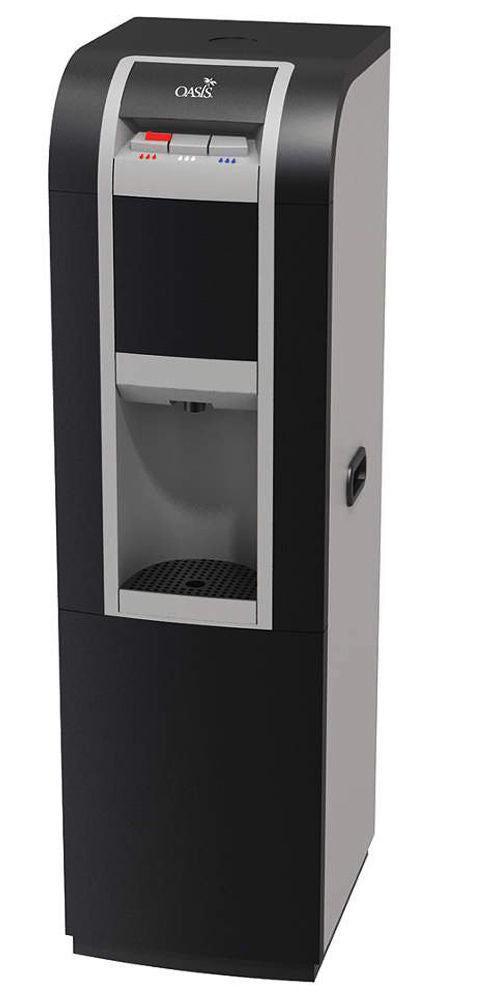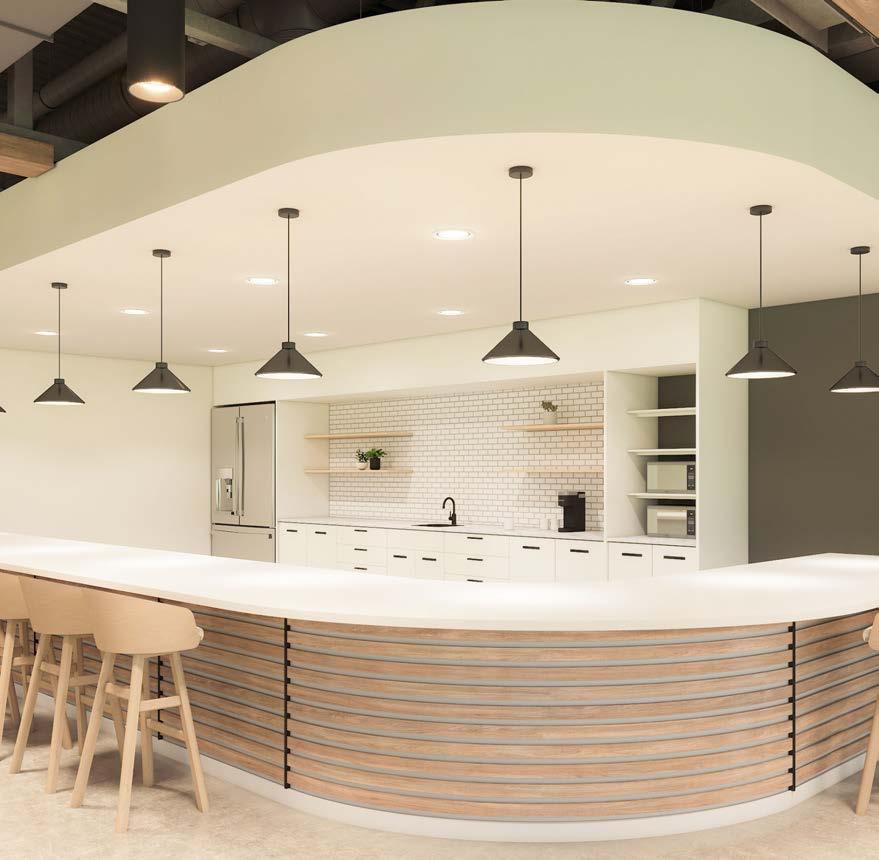Cafeterias and Break Time Amenities





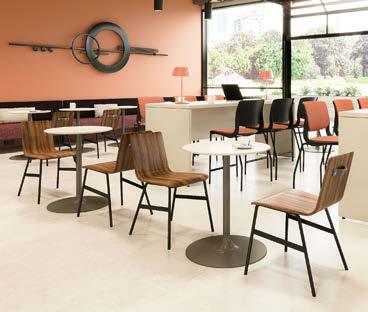













Today’s modern workplace comes with certain expectations for food and beverage options, while providing a comfortable place to enjoy them. Arriving at today’s standards came through innovation, legislation and the need to support employees while keeping them productive as factories and offices grew. More recently, it has become a place for connection, to refuel and offer a change of scenery - a recharge for well-being.
As early as 1902, companies have enhanced their employee’s experience with free coffee and snacks and later company cafes and cafeterias, also known as canteens, onsite.
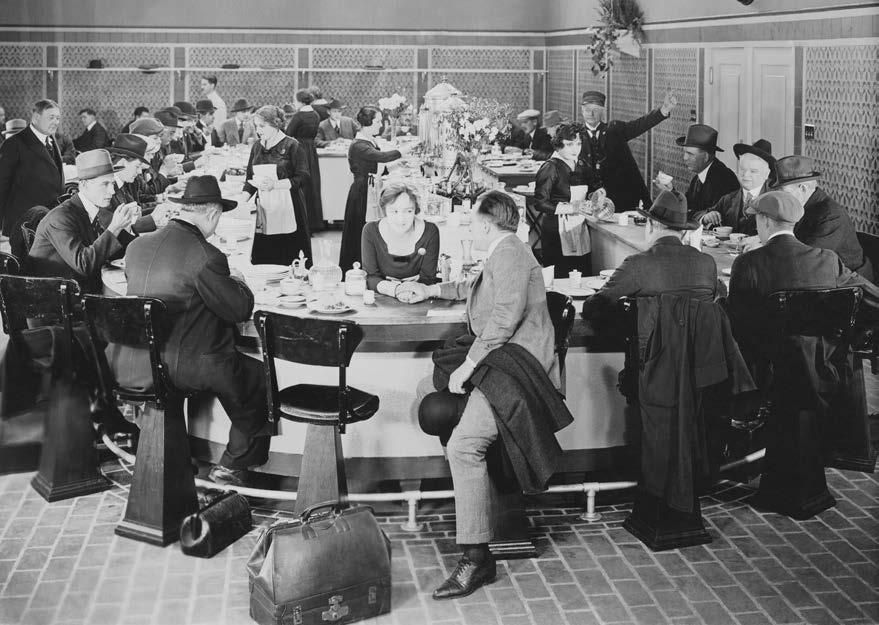
In New York, a couple of manufacturing companies began providing free coffee and a paid break to enjoy it as an effort to increase productivity on the production floor.
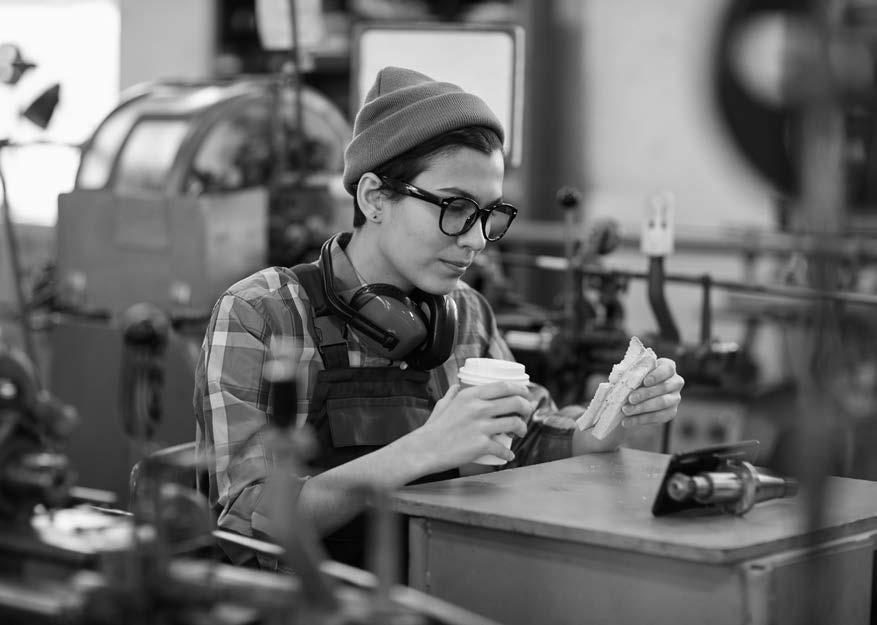
The distance between work and home was getting farther apart as industries grew and people took jobs with larger companies in urban areas. Going home for lunch was becoming more difficult and the result was changing to accommodate workers’ schedules.
Lunch behaviors changed as it was necessary to buy lunch close to the workplace or bring lunch from home.
Additionally, in a factory location, eating safely was challenging without a lunch area away from the factory floor. Hazardous materials, dangerous machines, and no real place to sit except for a workshop desk or on the floor was common. Laborers sometimes skipped handwashing to make sure they had time to eat.
Office workers also increased in numbers as industries grew. Women increasingly began taking on work away from the home too. As a result, more meals were eaten in and around the workplace. Increased legislation provided workers with minimum wages and other compensations allowing for the development of breakrooms, lunchrooms, cafeterias - sometimes called canteens. Cafes and restaurants grew around areas of worker concentration as well.
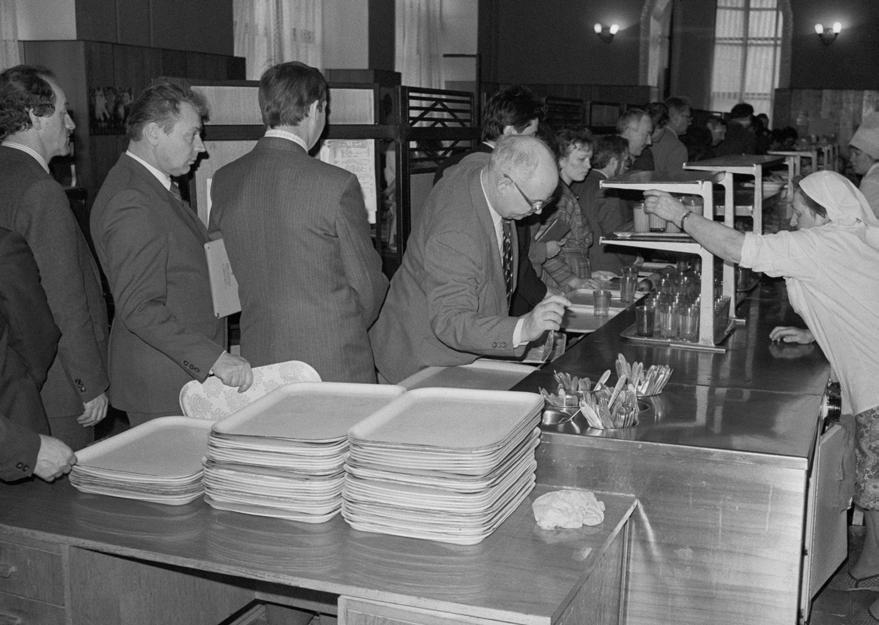
Even with lunch breaks, quickly getting back to work was emphasized. A fast way to pick up a meal became known as the “quick lunch.”
White collar workers embraced this, as a way to refuel the body, it did little to refuel the mind.
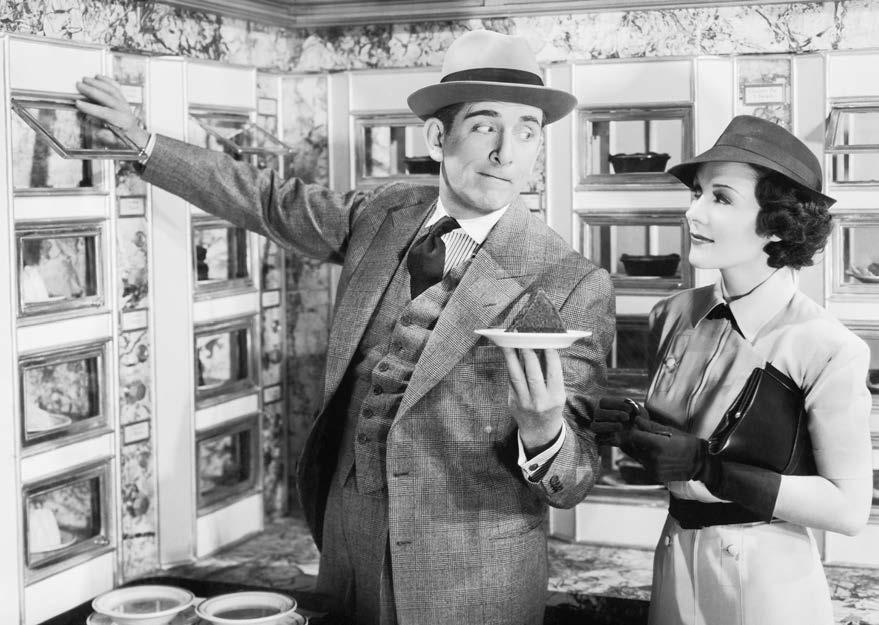
Worker productivity took precedent over worker well-being. Automats (top image) helped to facilitate the quick and easy lunch fulfillment. Like current-day vending machines, you would put in coins, open a small door and take your food. Quick lunches left workers with little motivation to complete their workday.
The role of cafeteria spaces would expand well beyond the lunch hour. The space quickly becomes valuable for teams requiring additional room to work and utilize adaptable environments. Individuals needing time alone, away from co-workers, could grab a corner space and enjoy solitude.
These spaces need to continue to evolve to meet the needs of a changing workforce.
Eating alone has become all too common and companies should encourage their workers to take a break away from their workspace and interact with co-workers more often. Providing a well-designed break area is important to change that behavior.
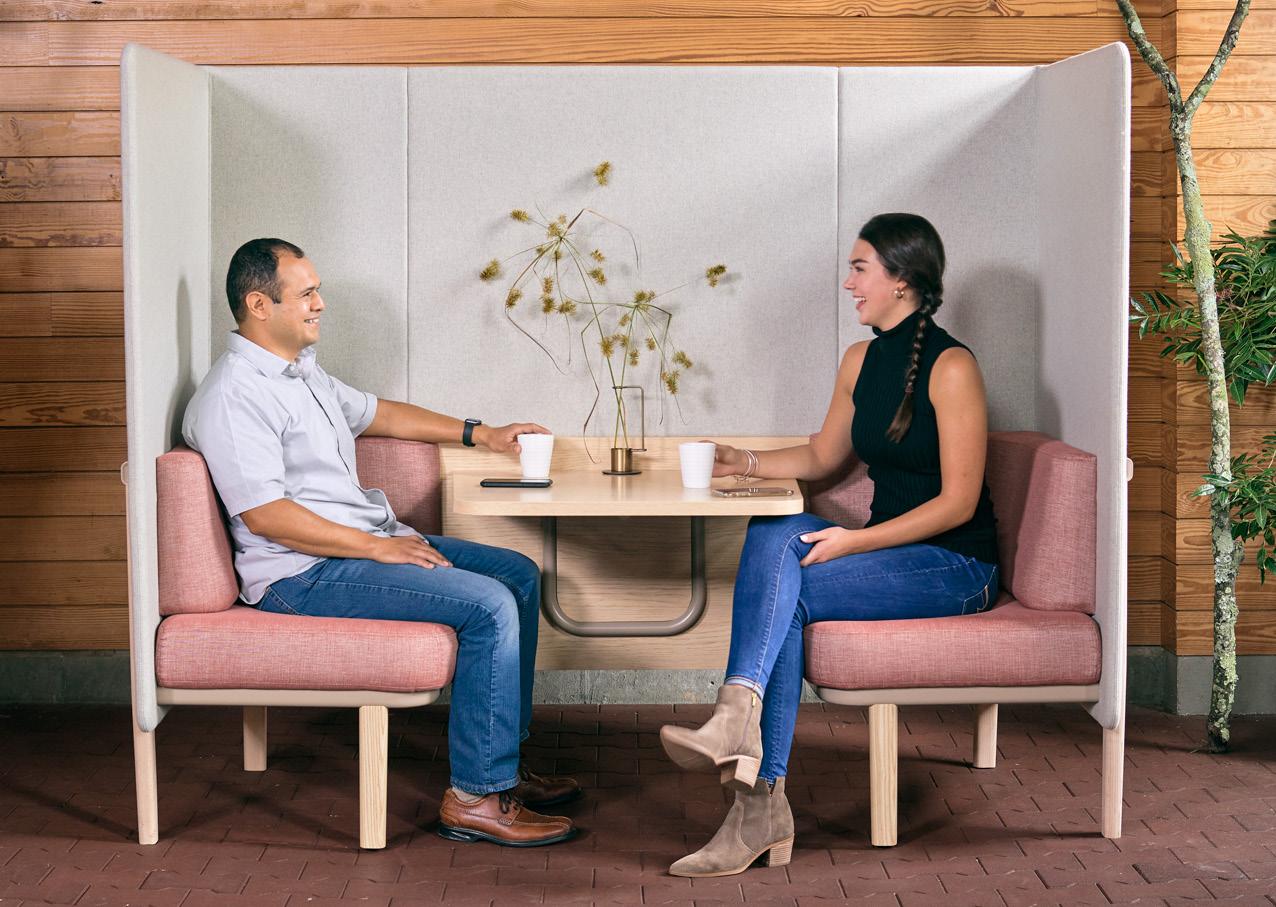
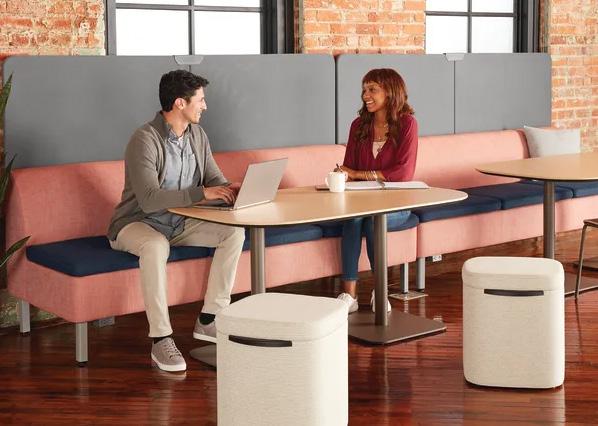
50% EAT LUNCH ALONE
60% EAT LUNCH AT THEIR DESKS
In order to bring people back to work full-time or a hybrid of 3 days, for instance, requires improvements for break time spaces. Service, Experience and Work all come into play.
Service - Healthy food options, well stocked varieties of foods, snacks and hot & cold beverages with plenty of storage space.
Experience - User experience can be enhanced with proper traffic flow to food options, proper signage and decorative lighting.
Work - Be something for everyone with charging stations, readily adaptable for large meetings and other alternate work gatherings.
Let’s look at four cafeteria space concepts to offer more visual ideas.
Design a space for flexible needs. Remove boundaries and allow for the user to have control.
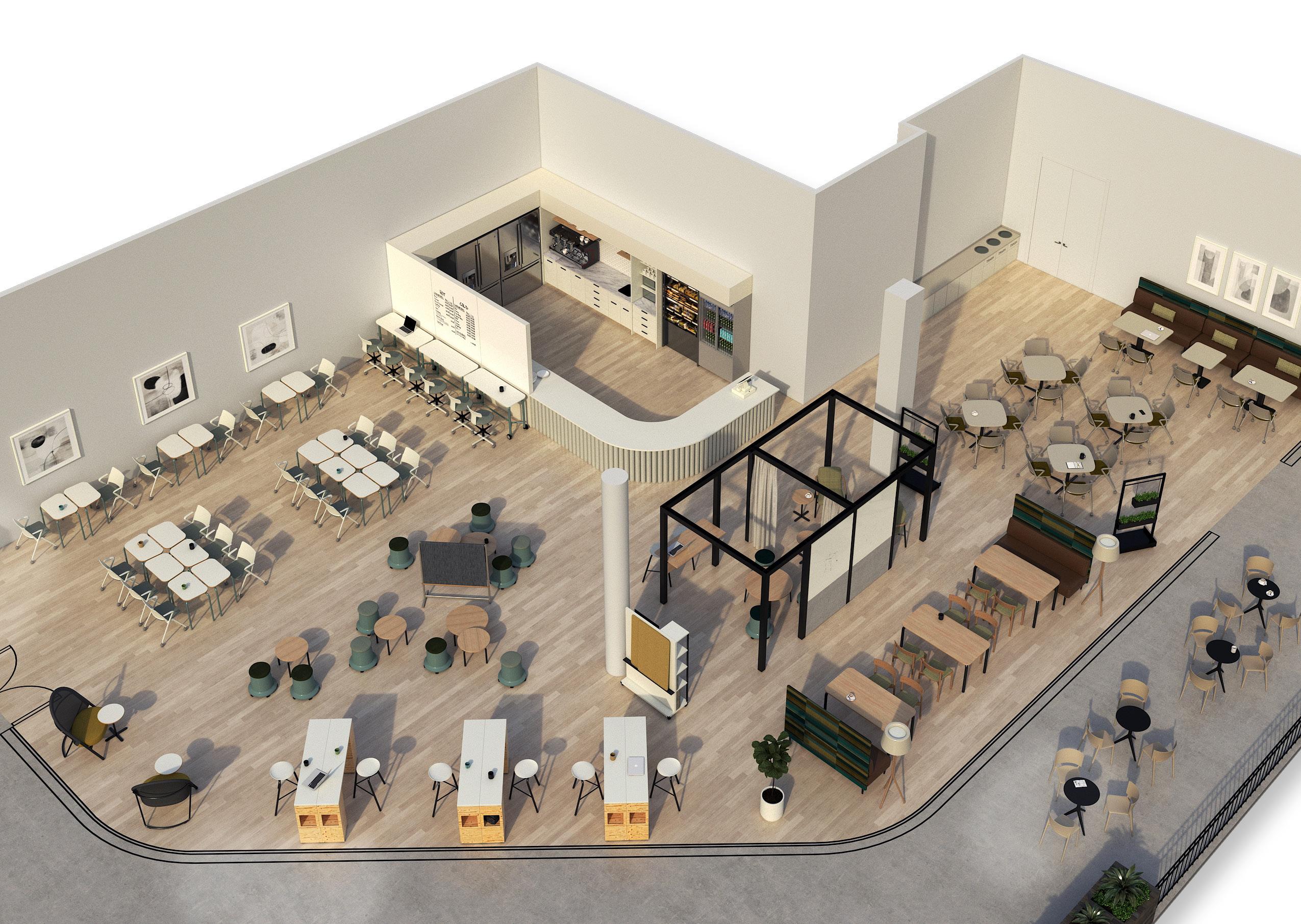
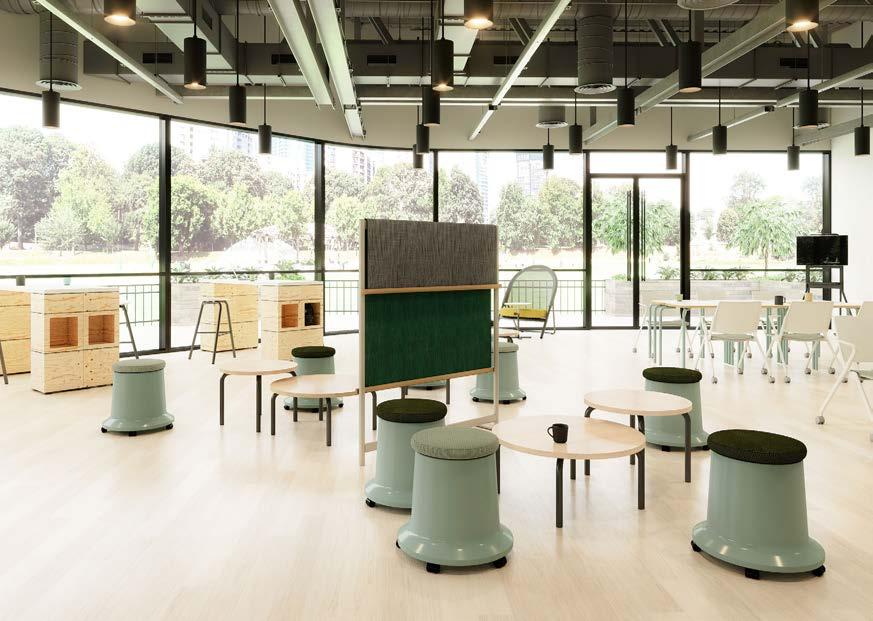
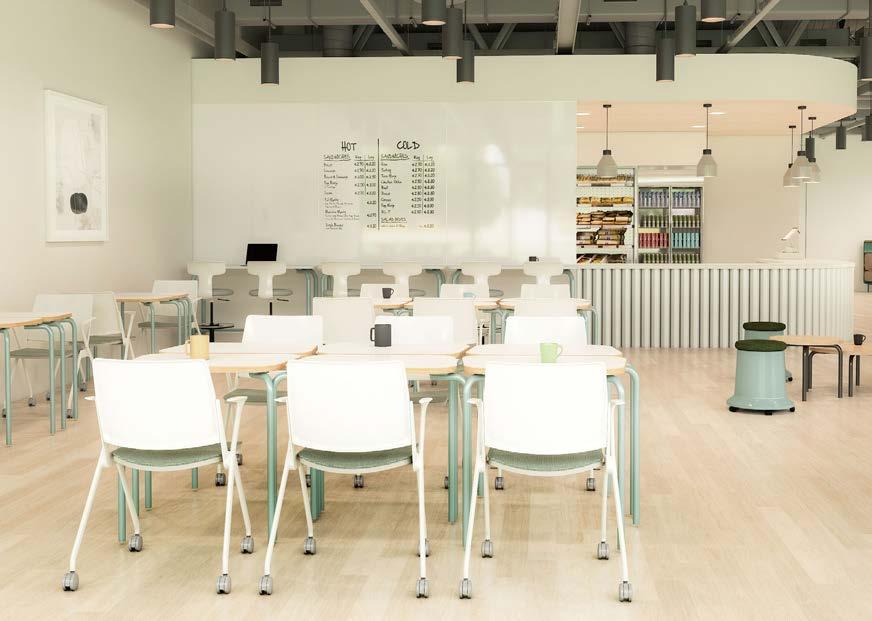
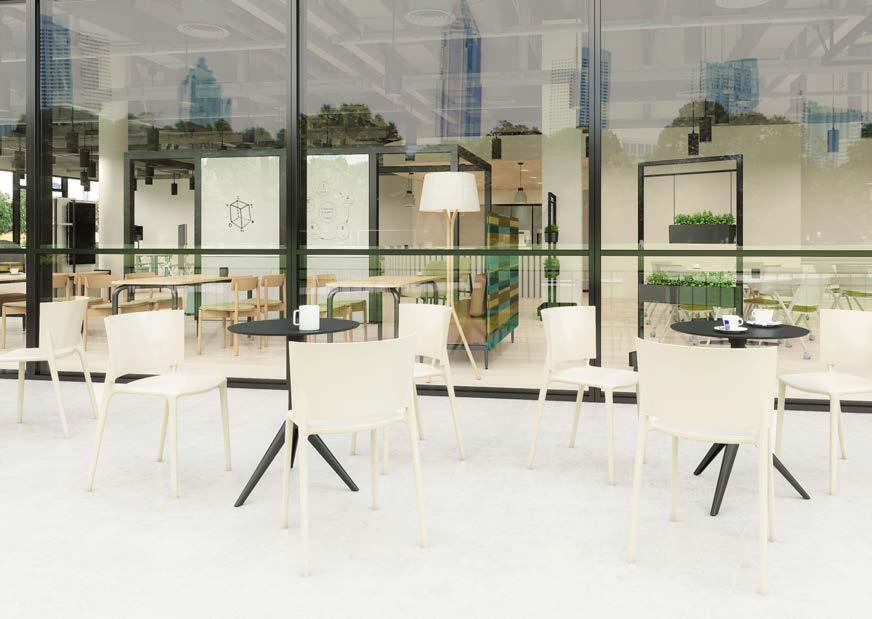
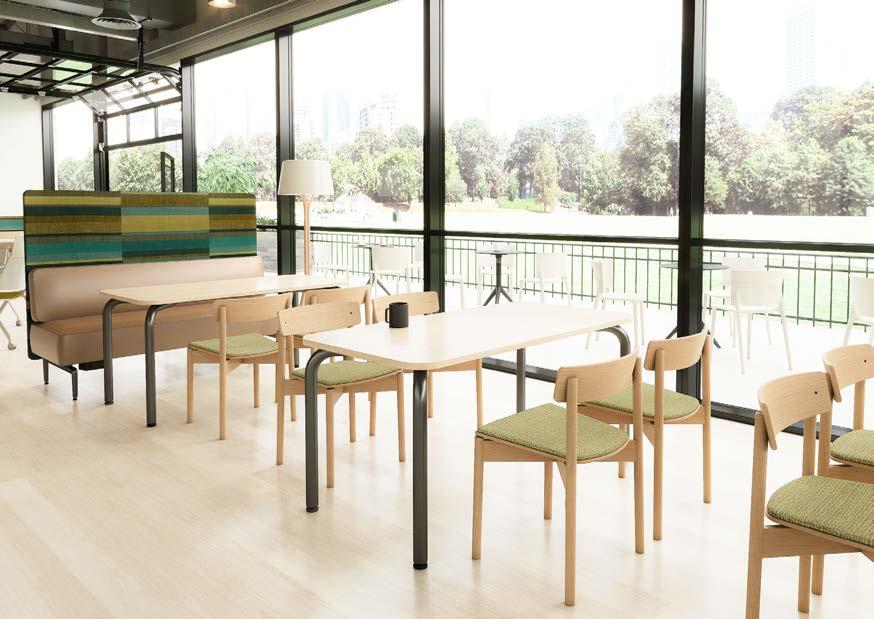
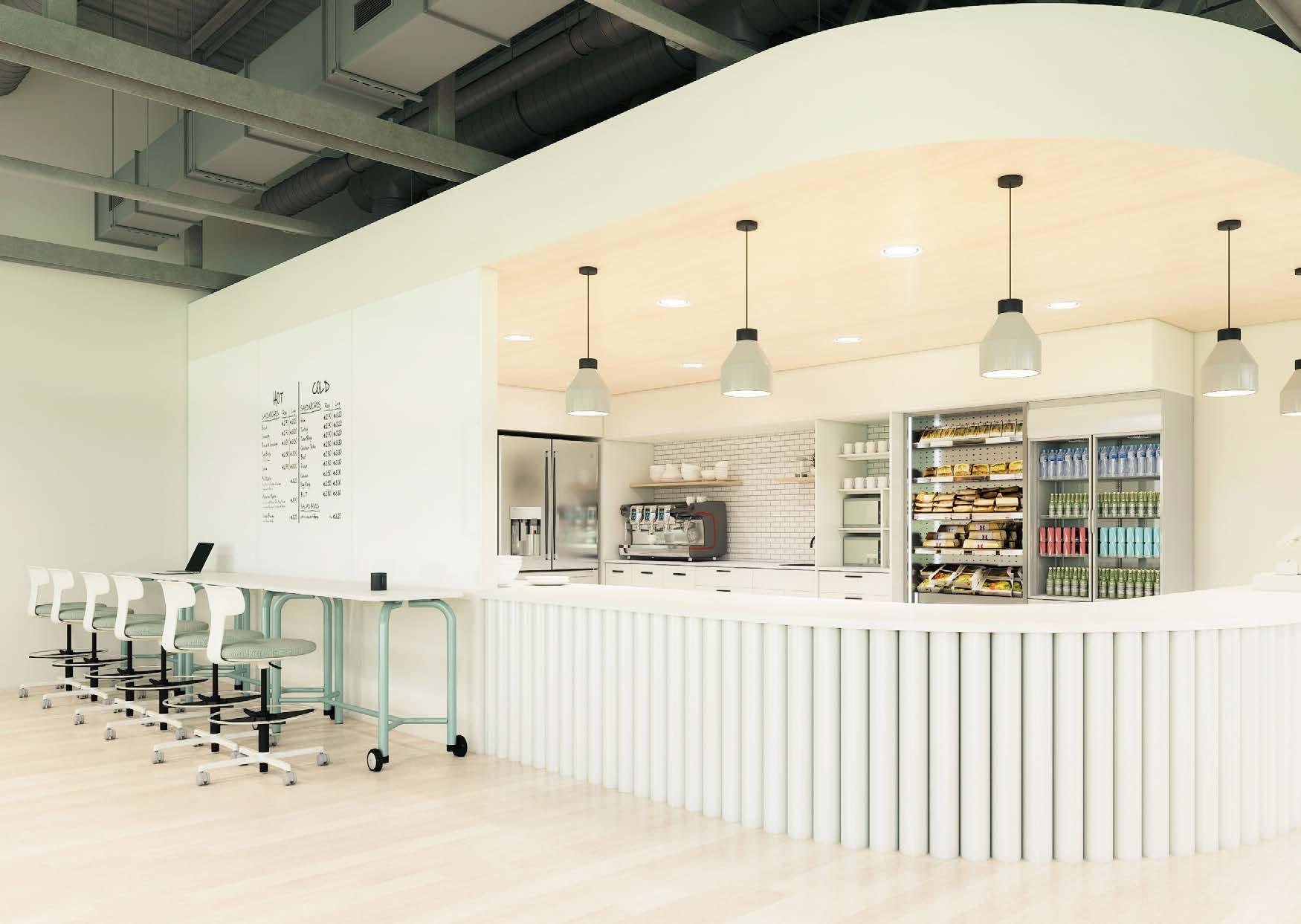
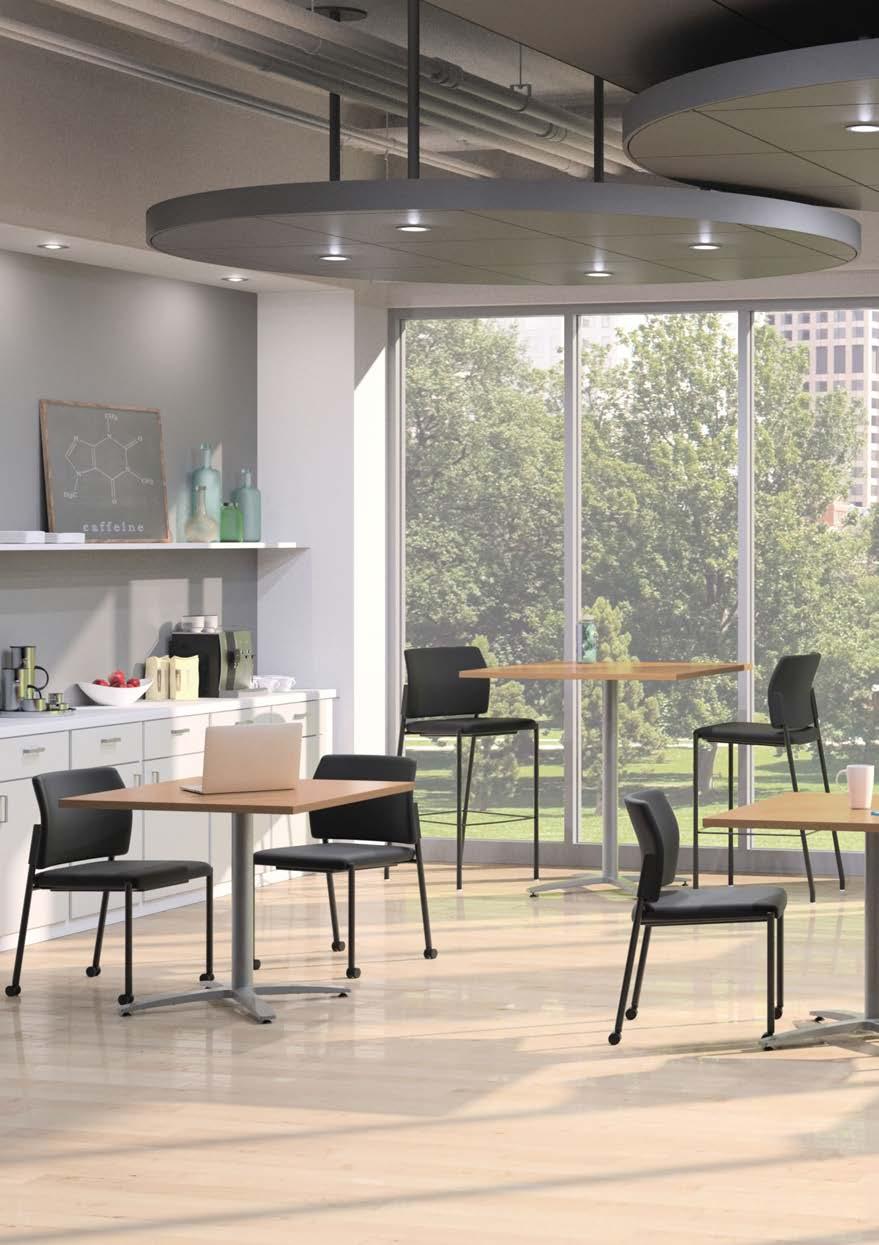
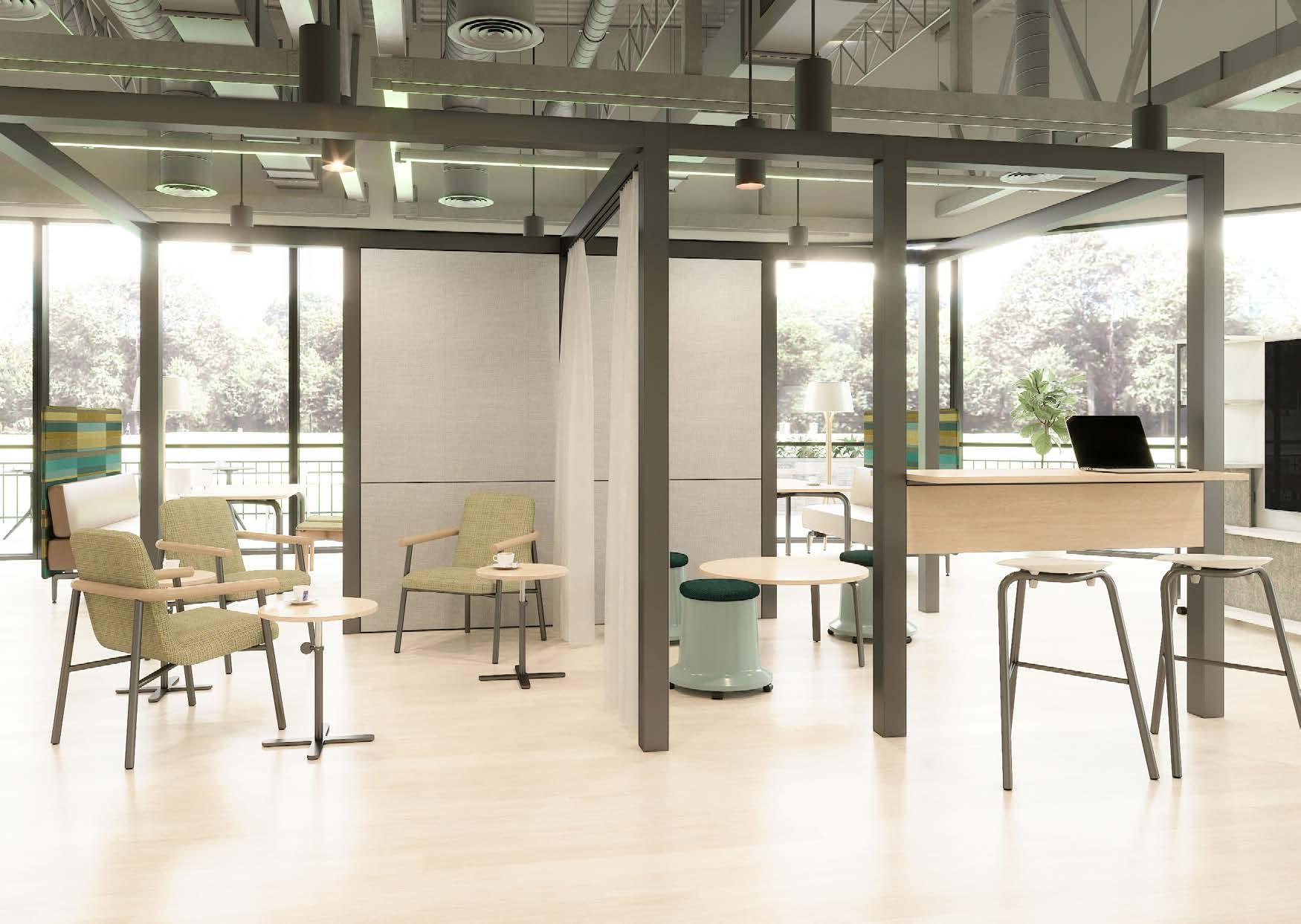

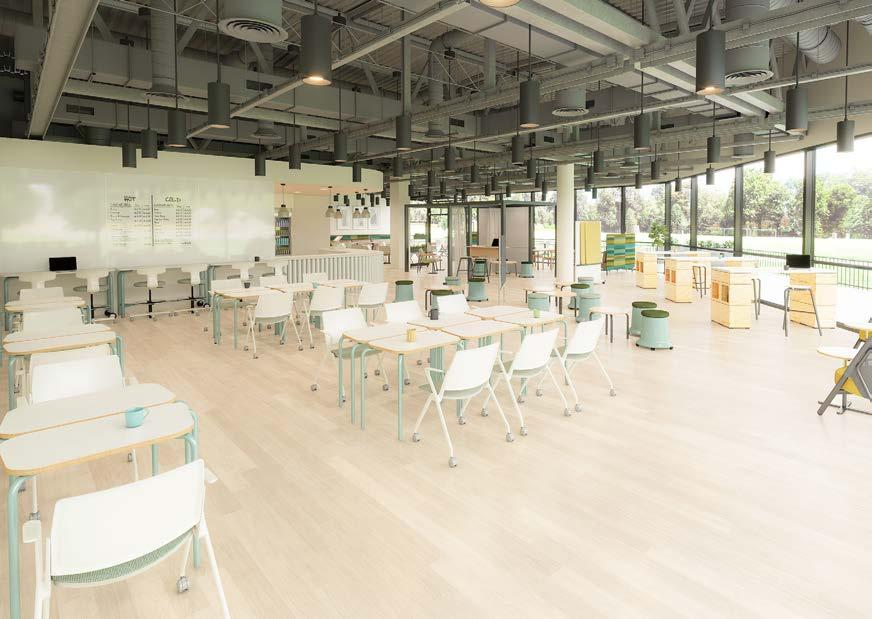
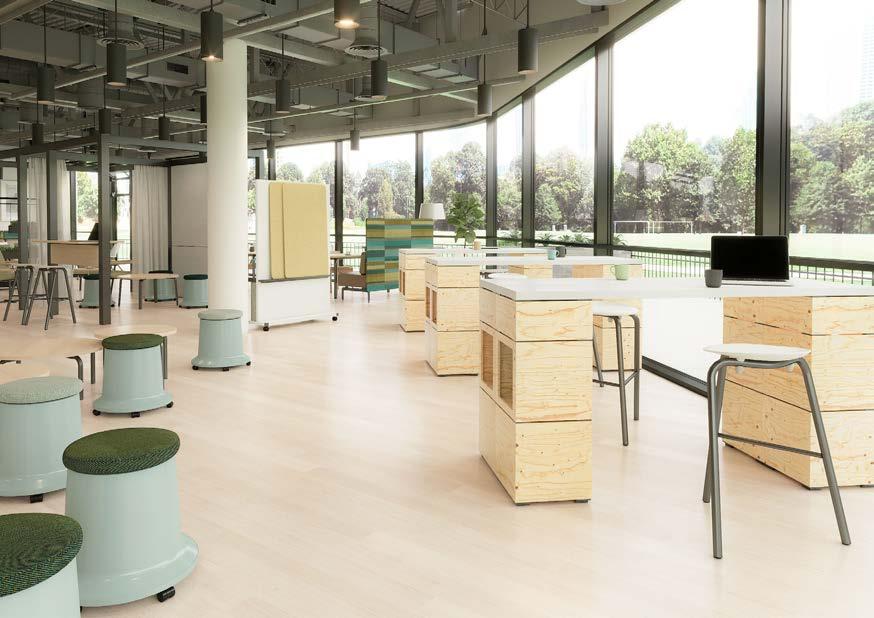
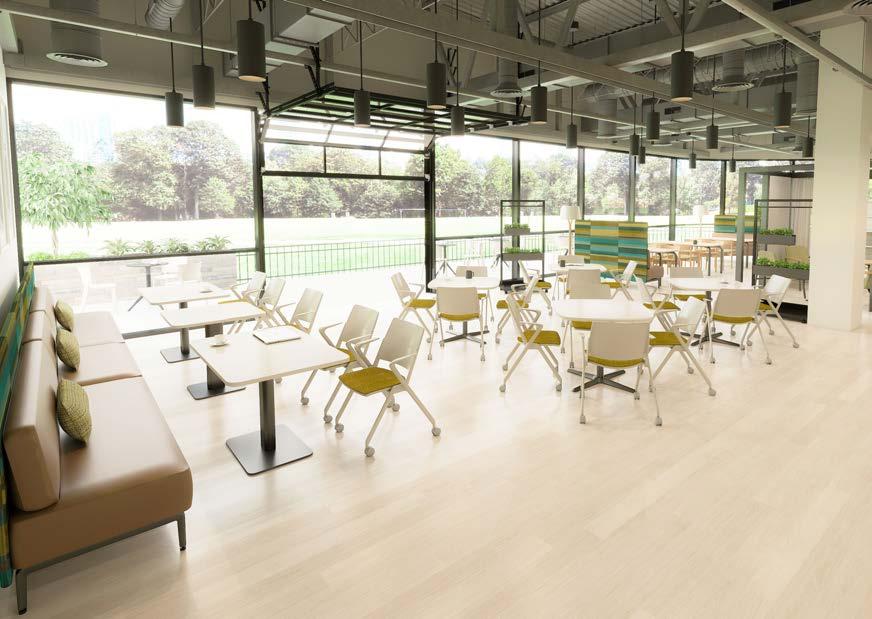

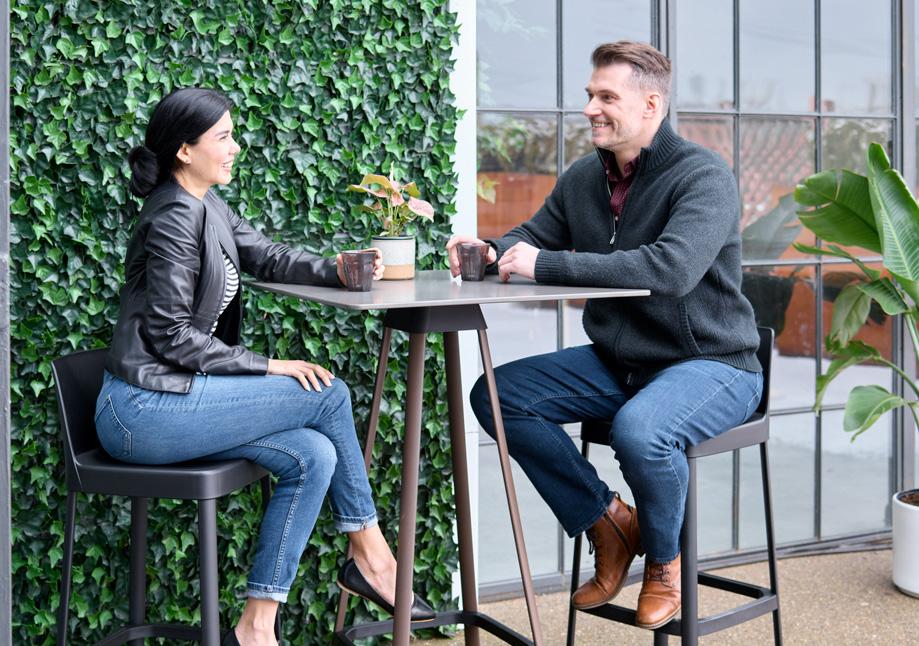
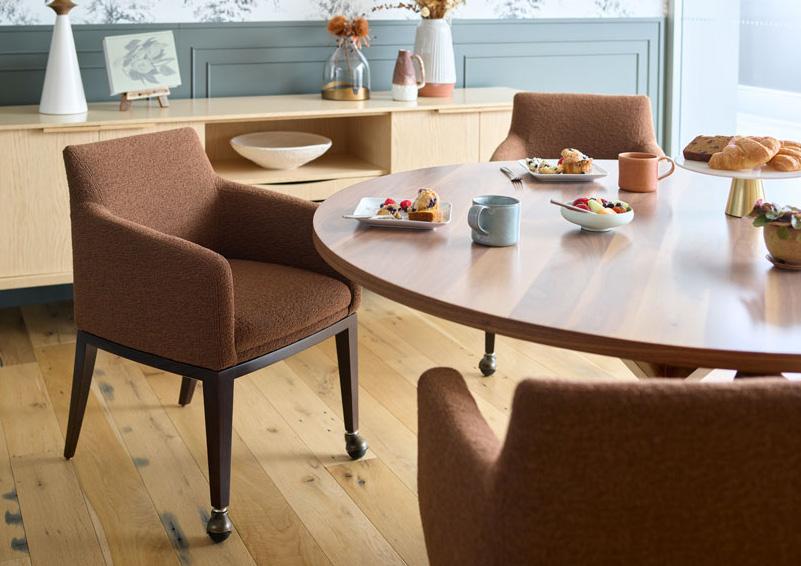
Make a space designed for comfort in multiple settings that encourages usage by teams and individuals.

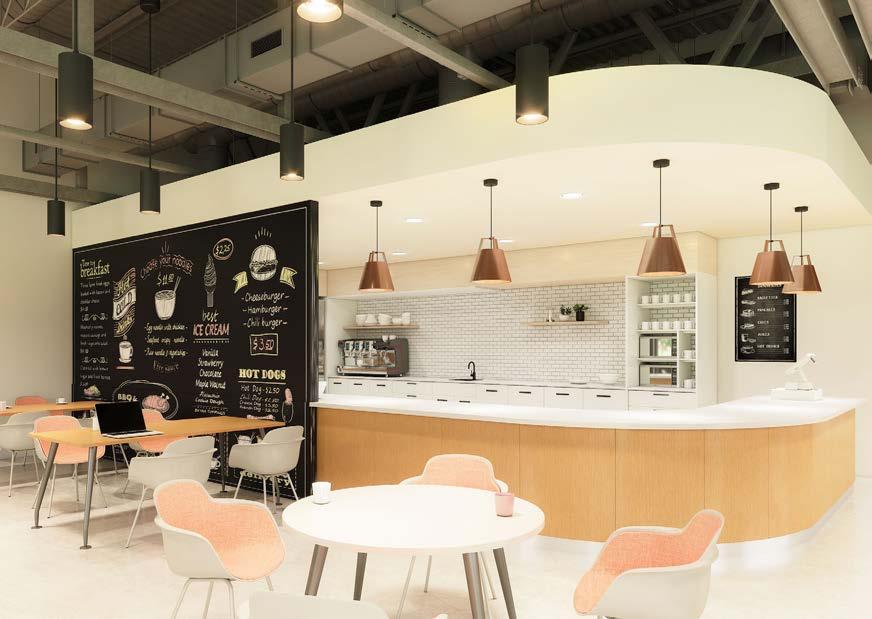
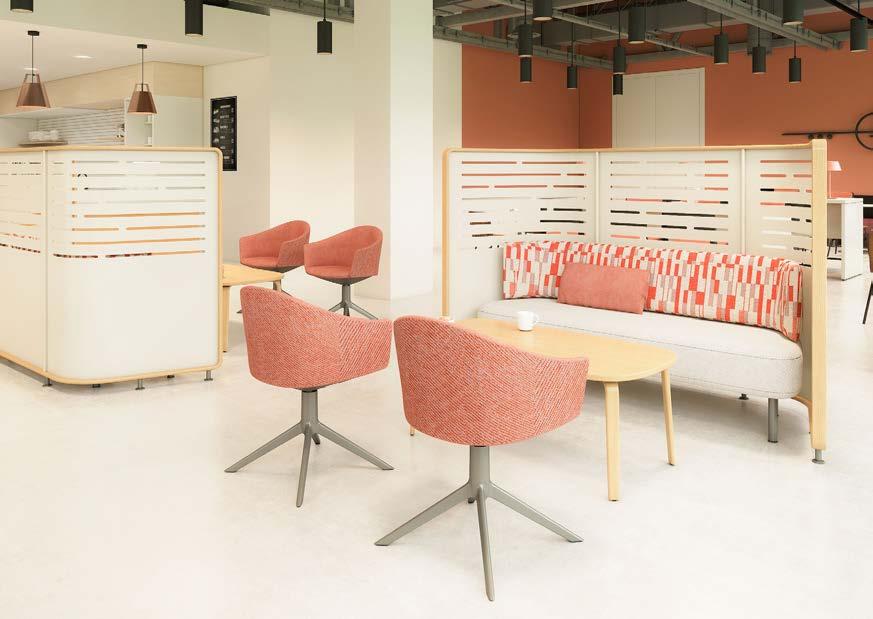
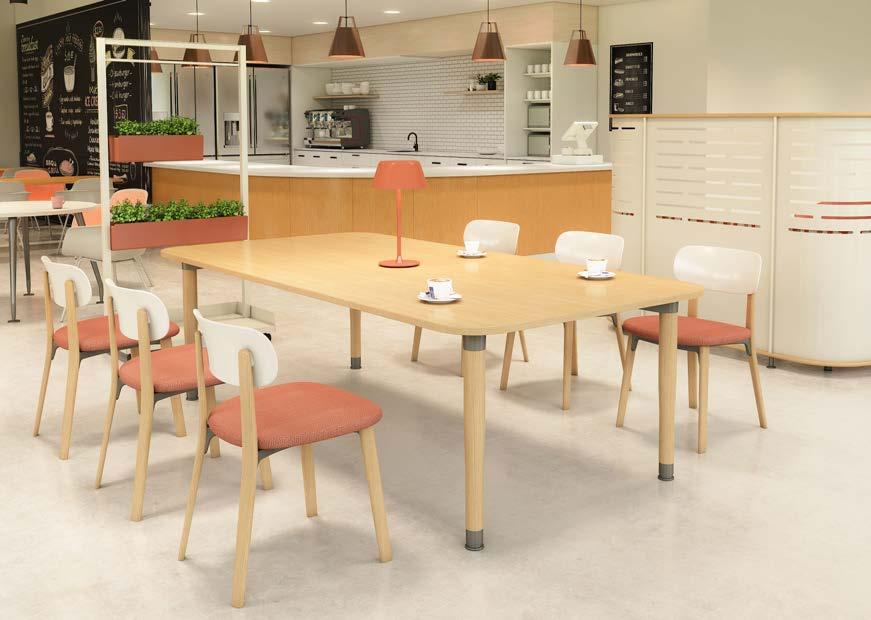
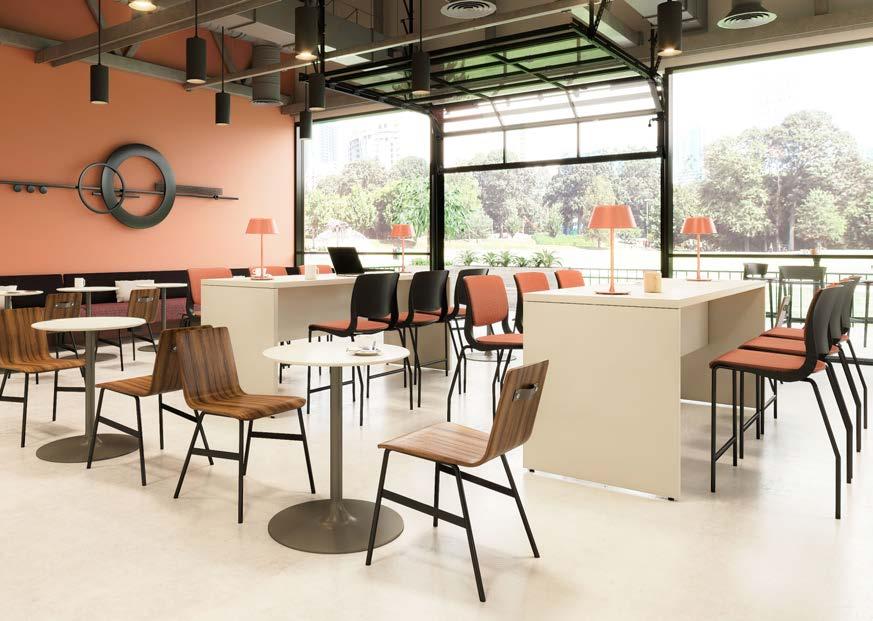
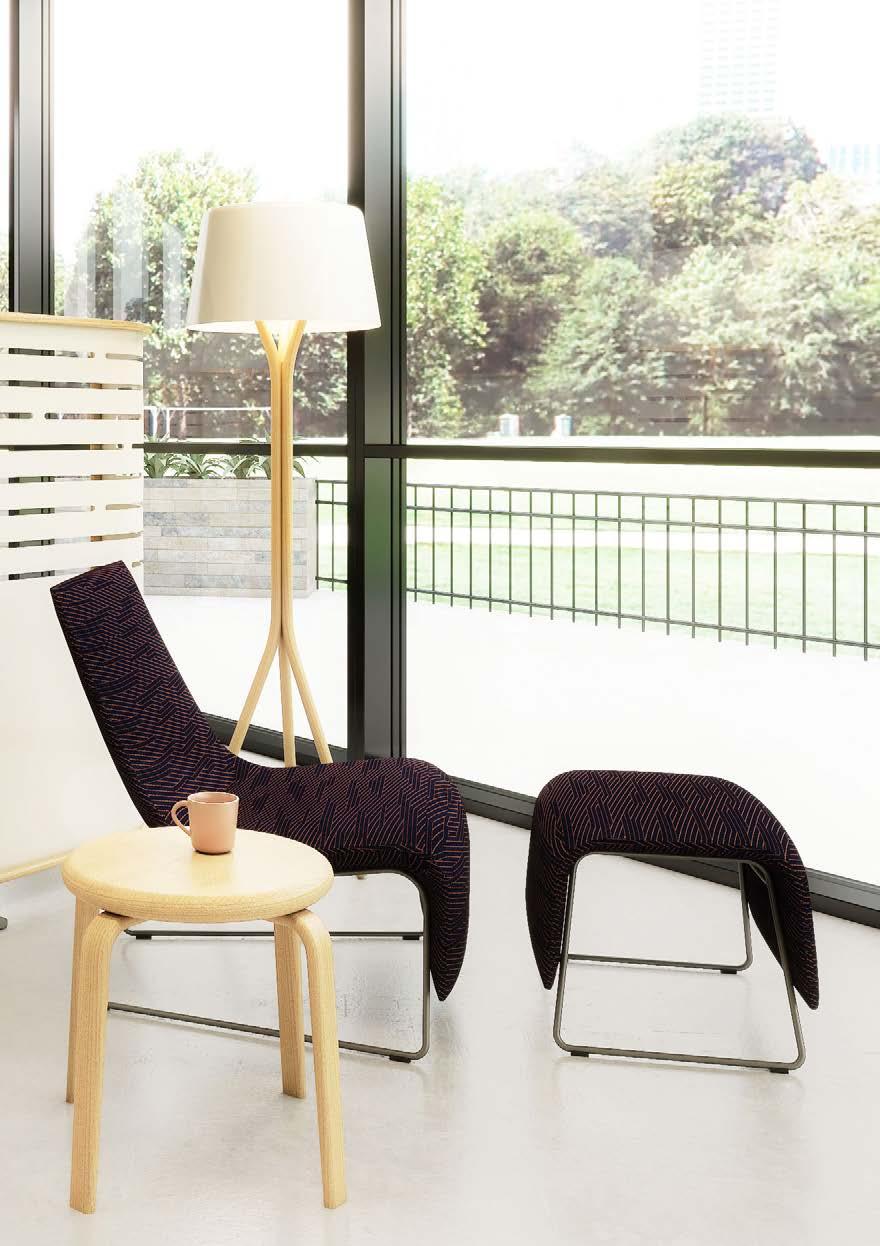
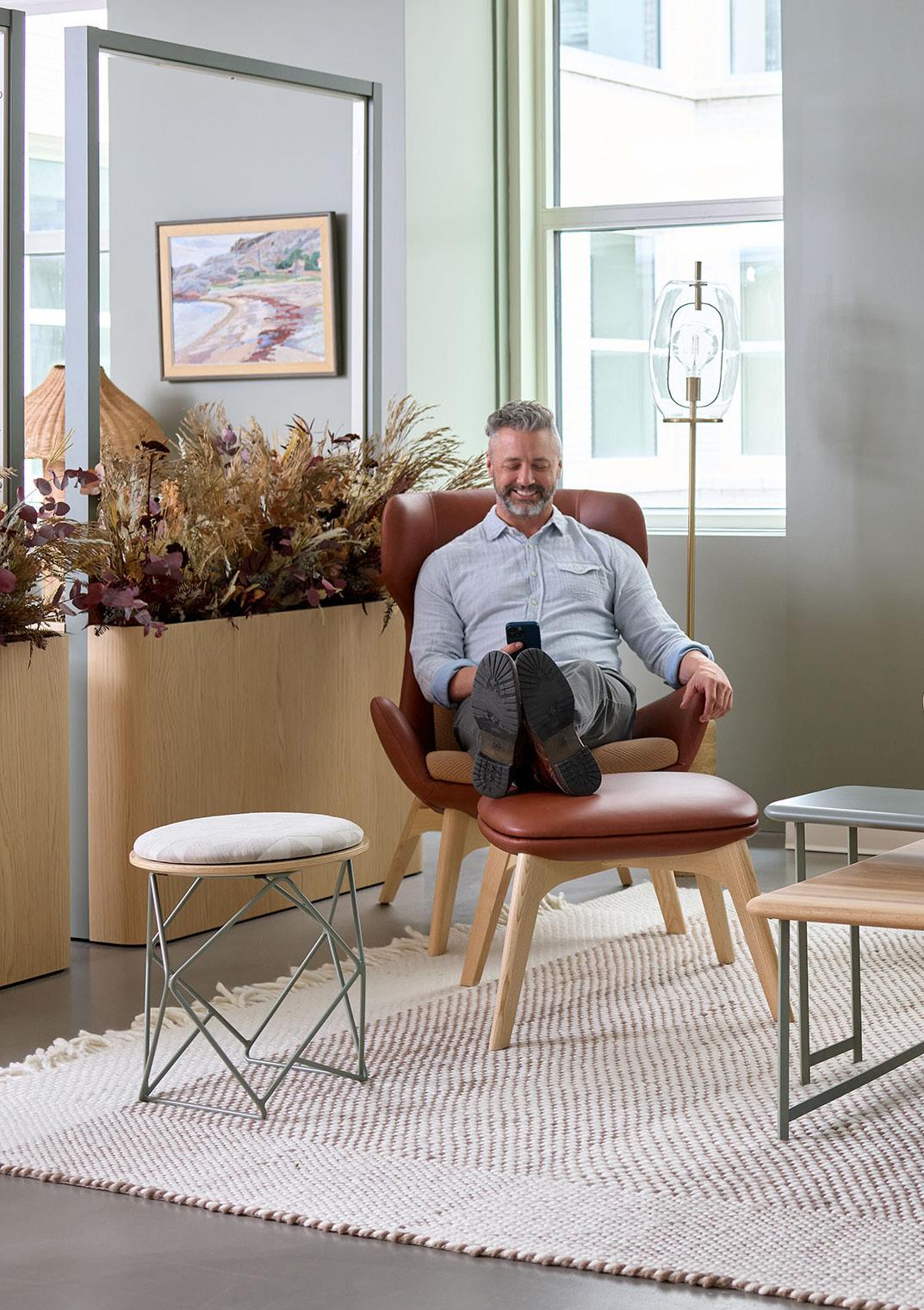
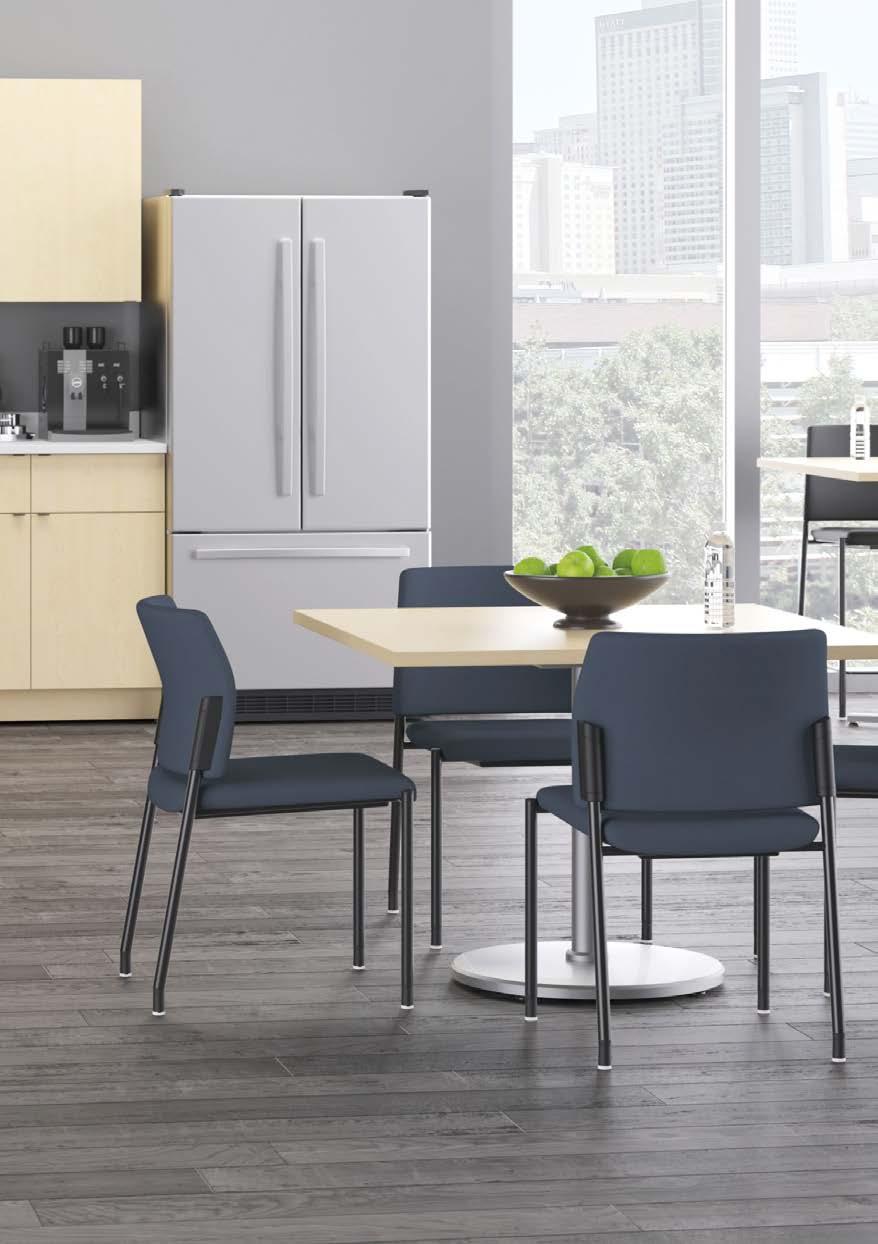
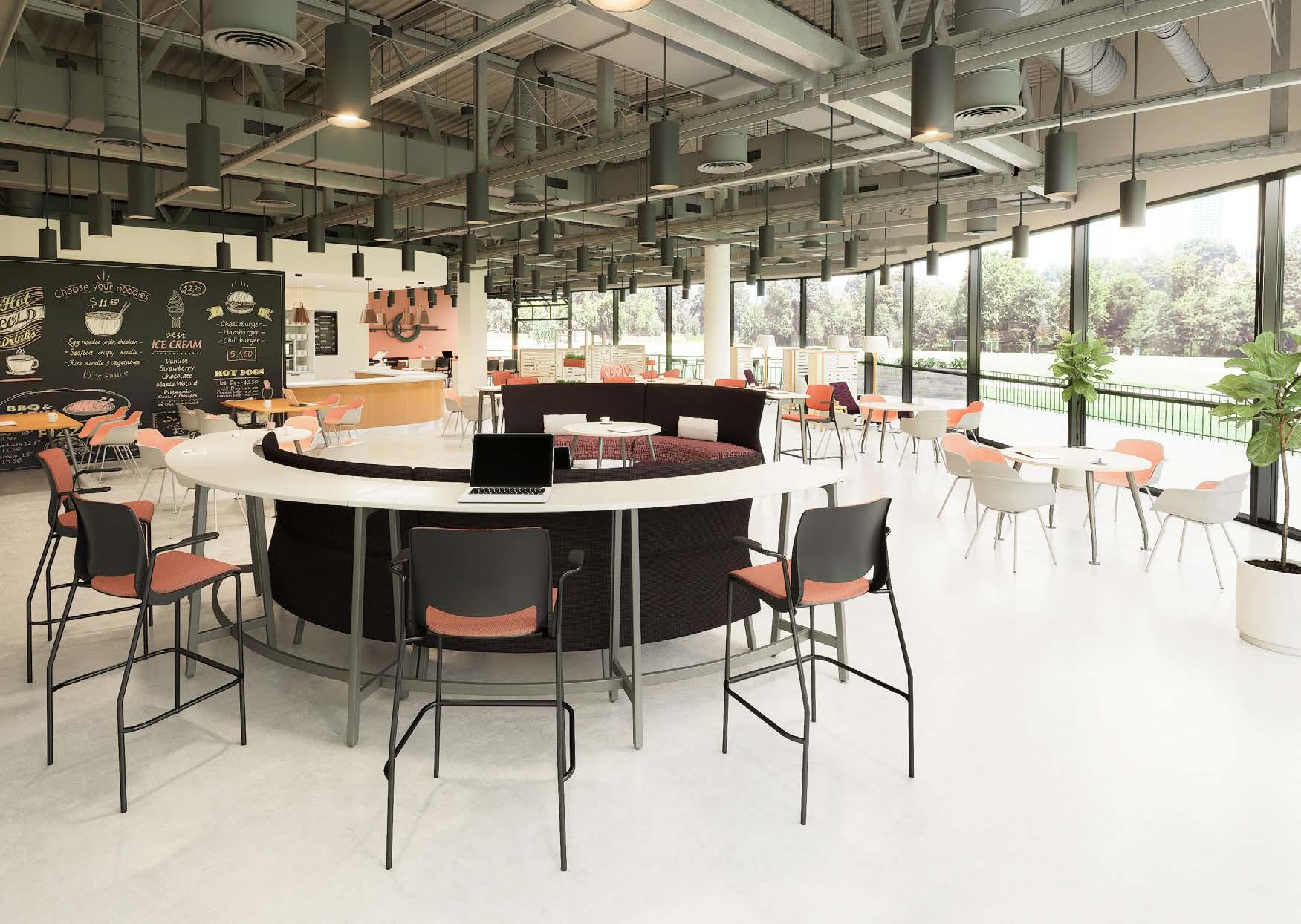
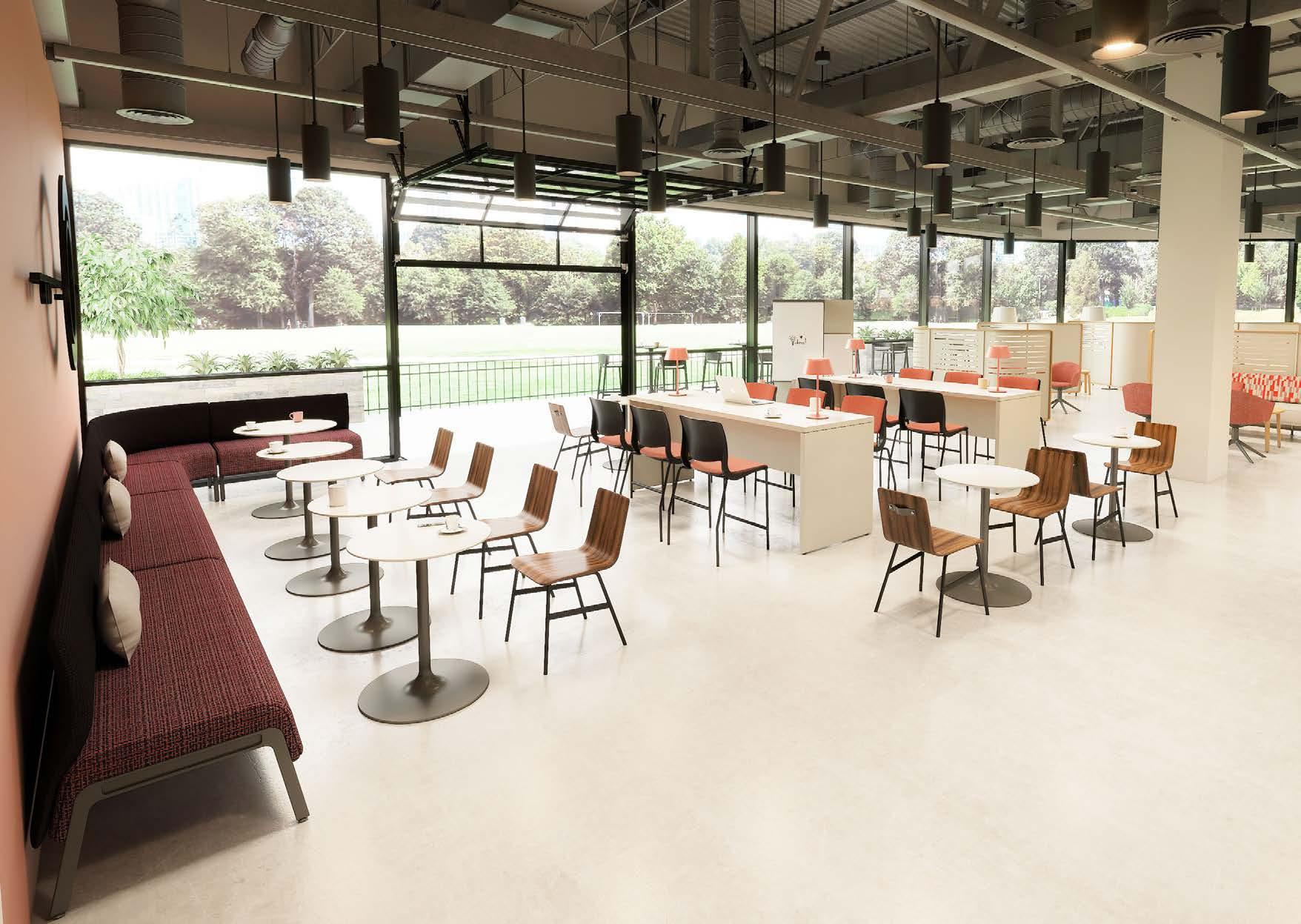
Mobile furniture that provides visual cues to be formal with full function and a refined color palette.

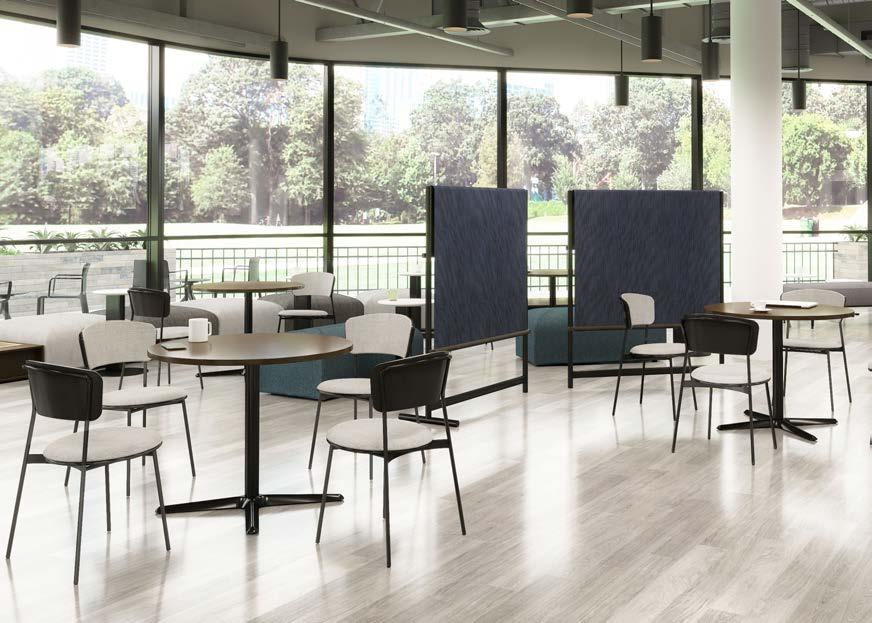
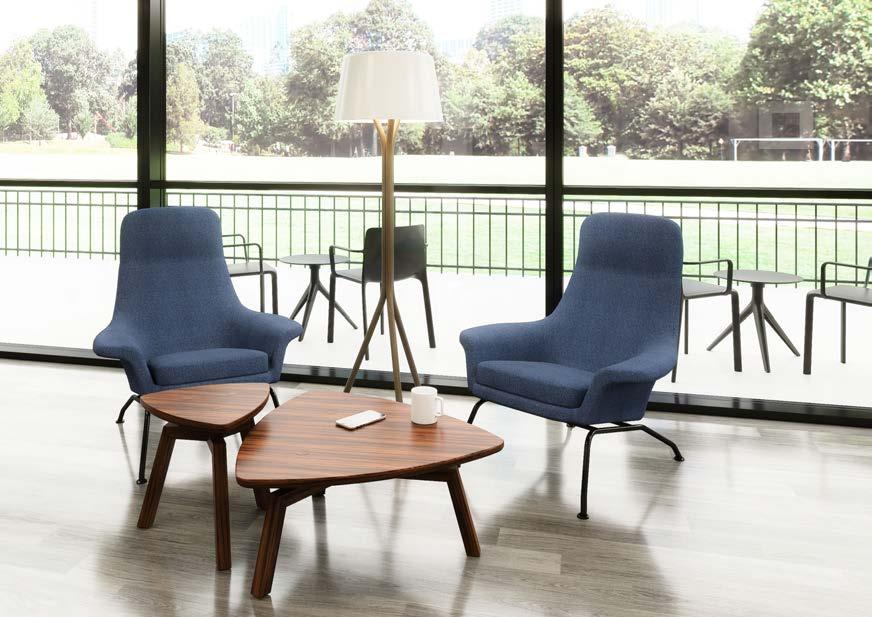
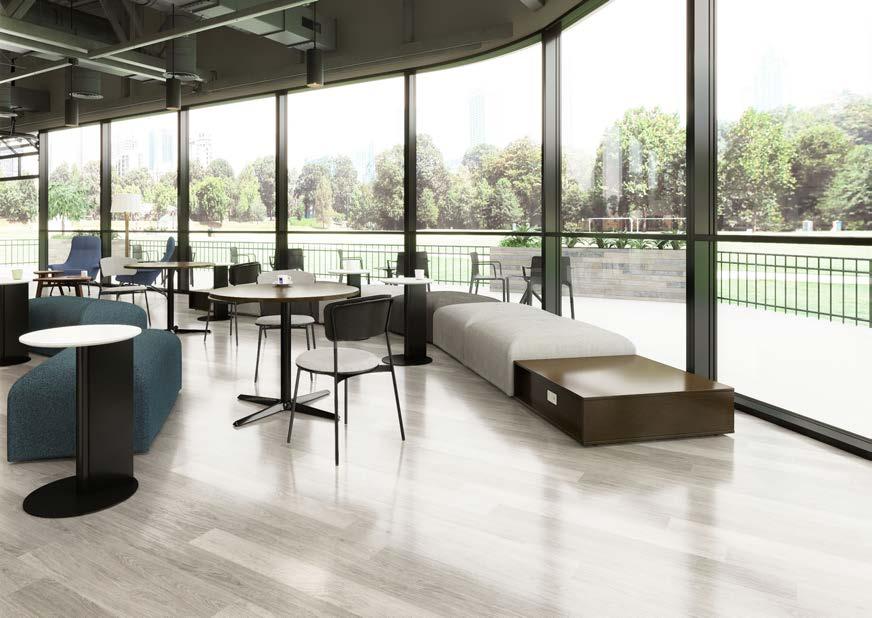
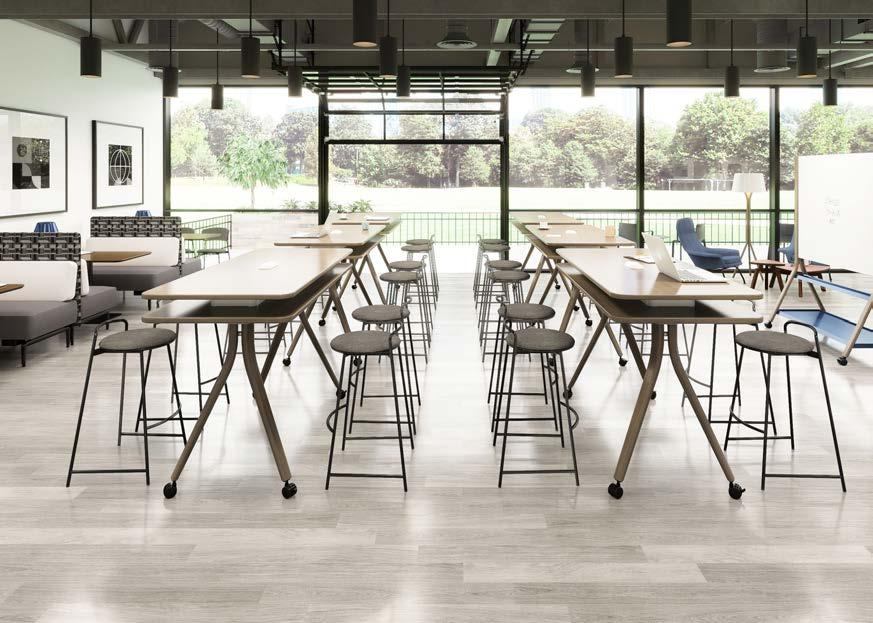
Make
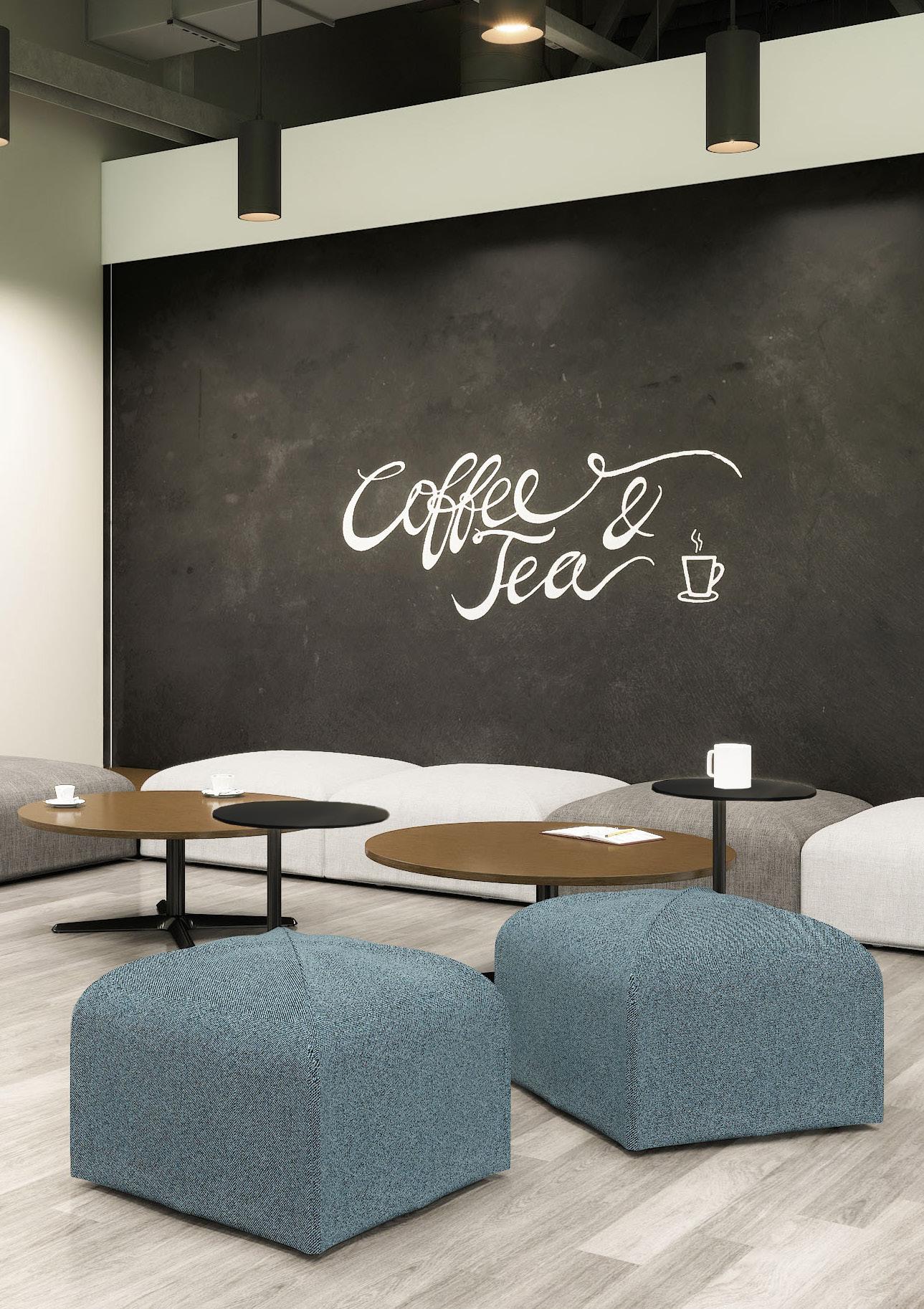
a space functional and mobile.
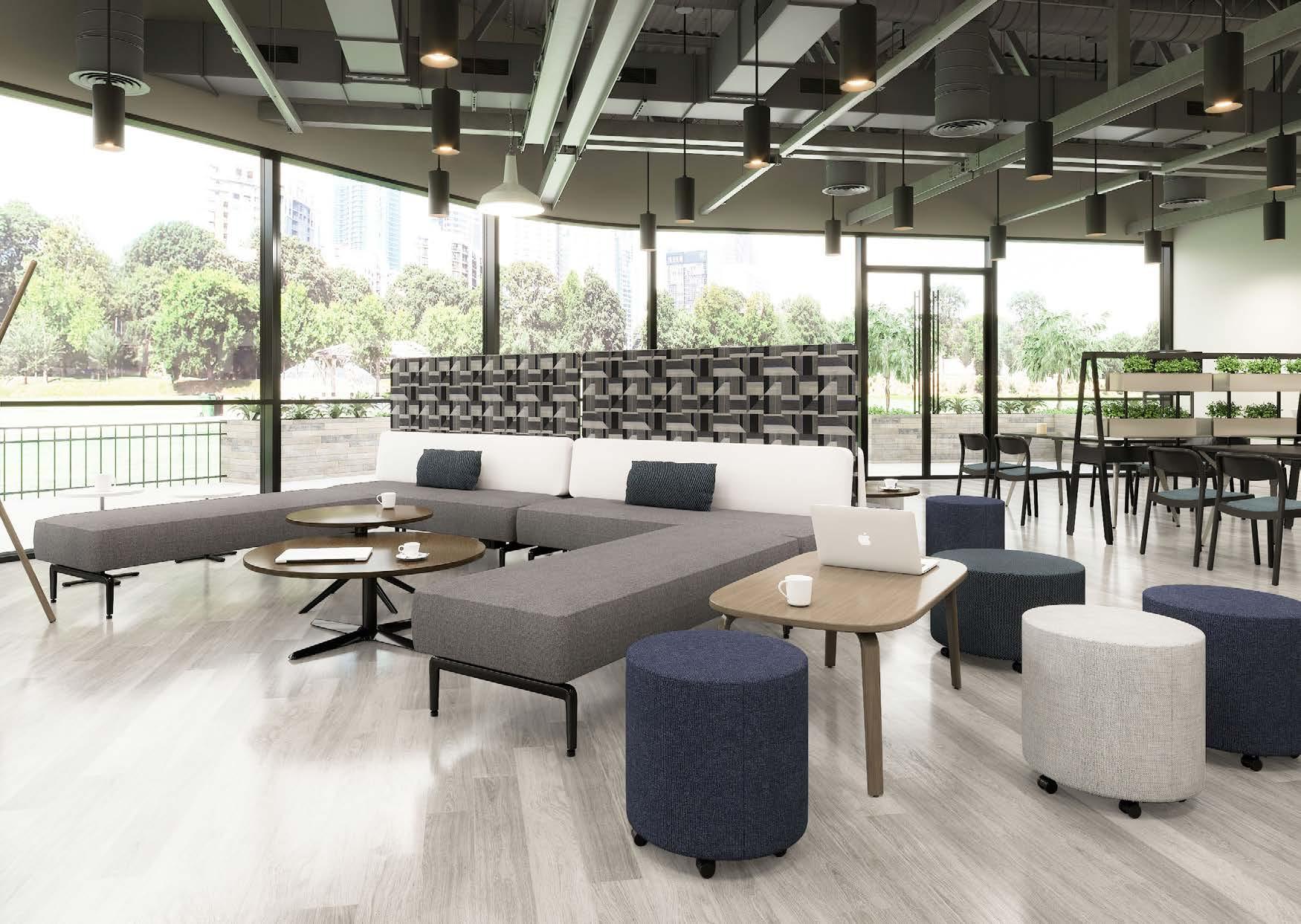
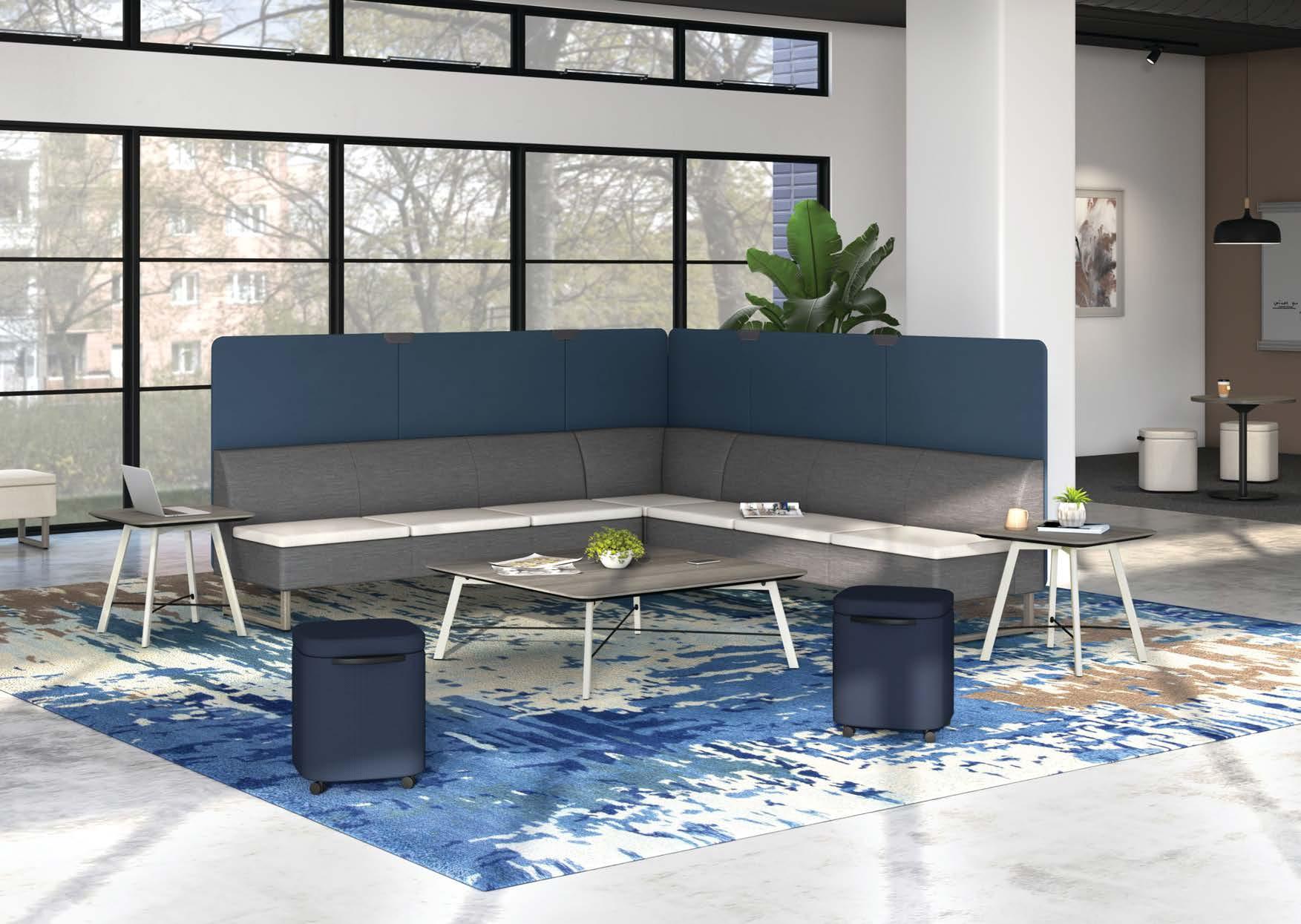
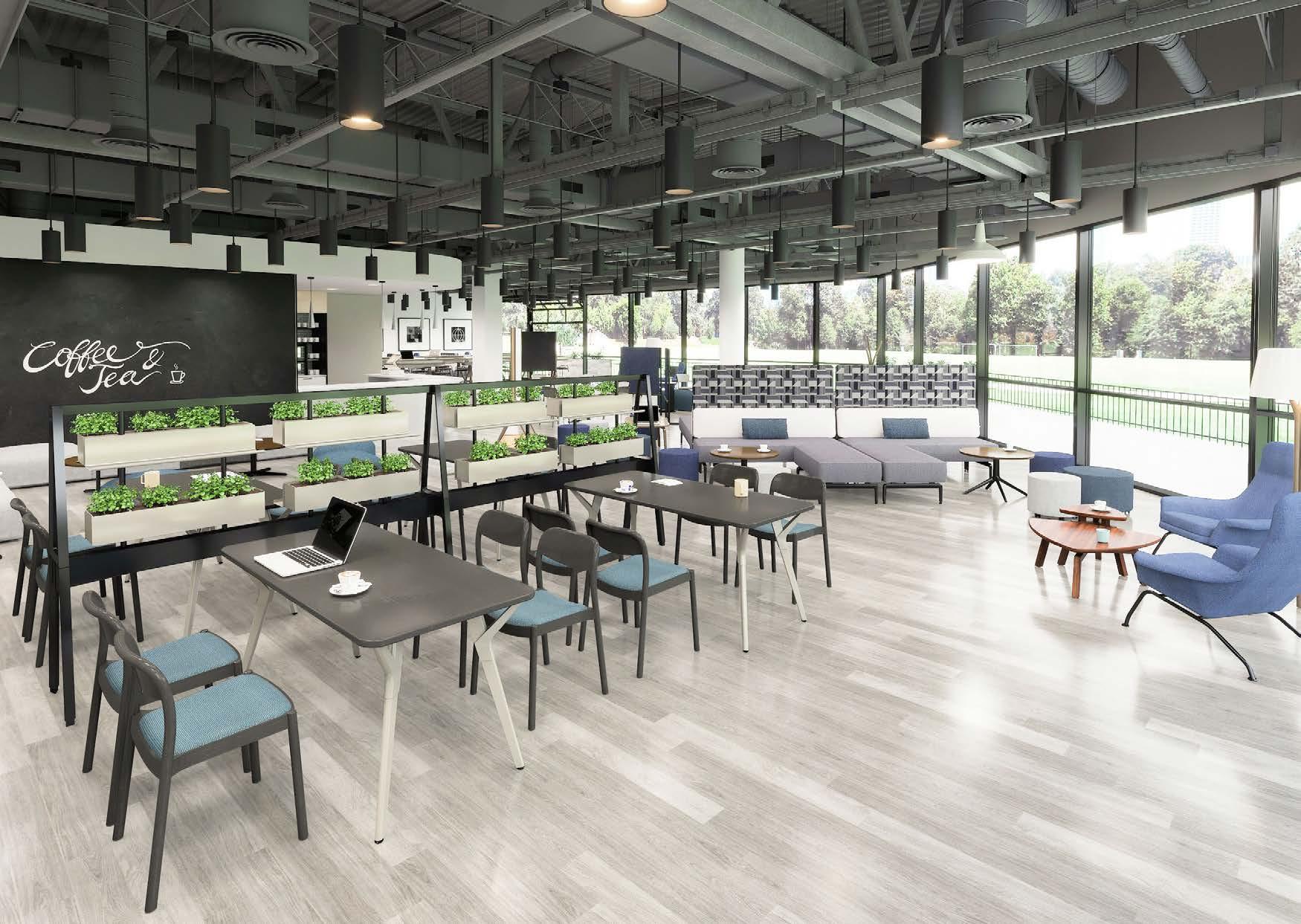
Encourage socializing and collaboration with a cafeteria that goes beyond traditional with fixed settings that vary through the space and colors reflecting levels of formality.
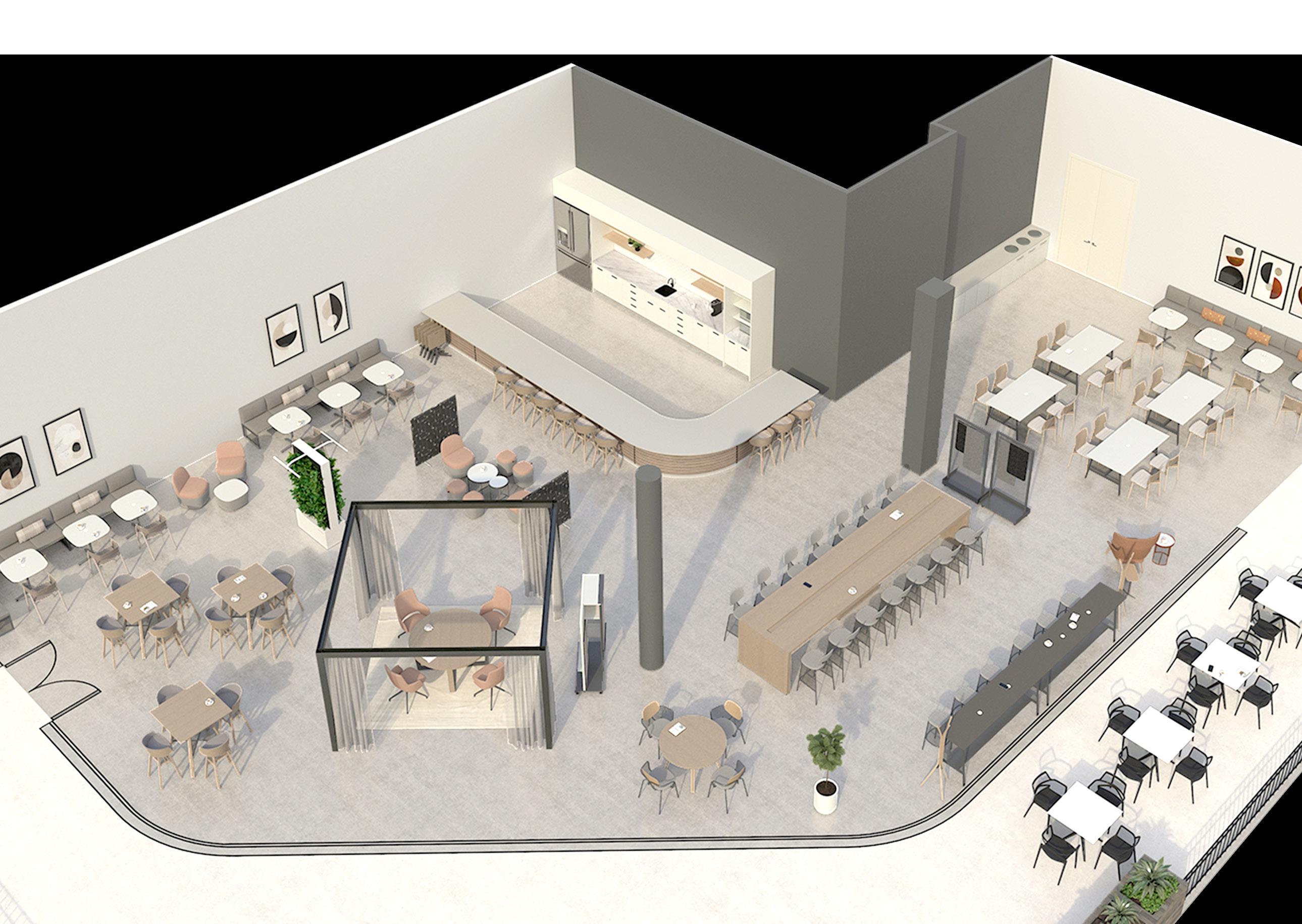
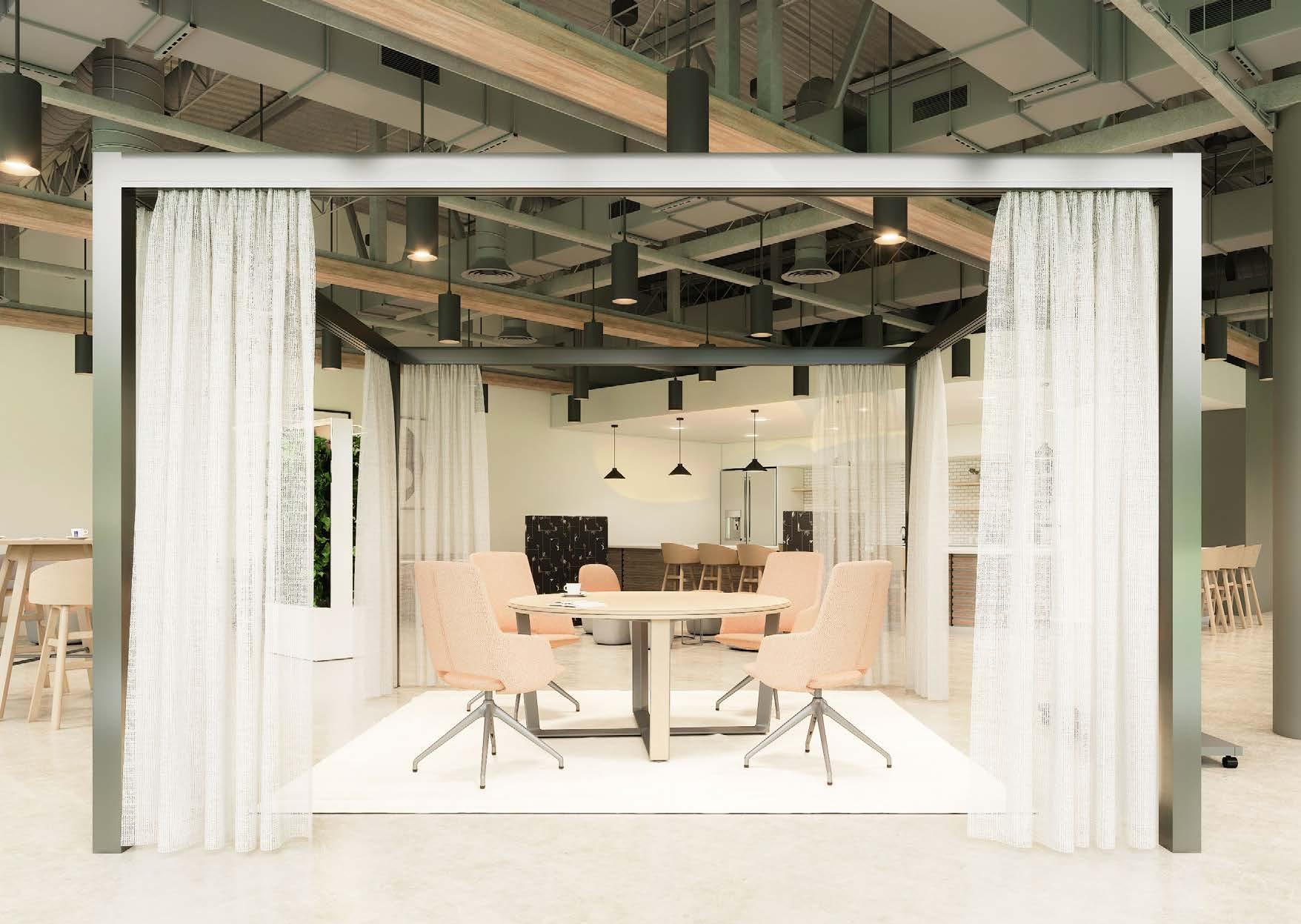
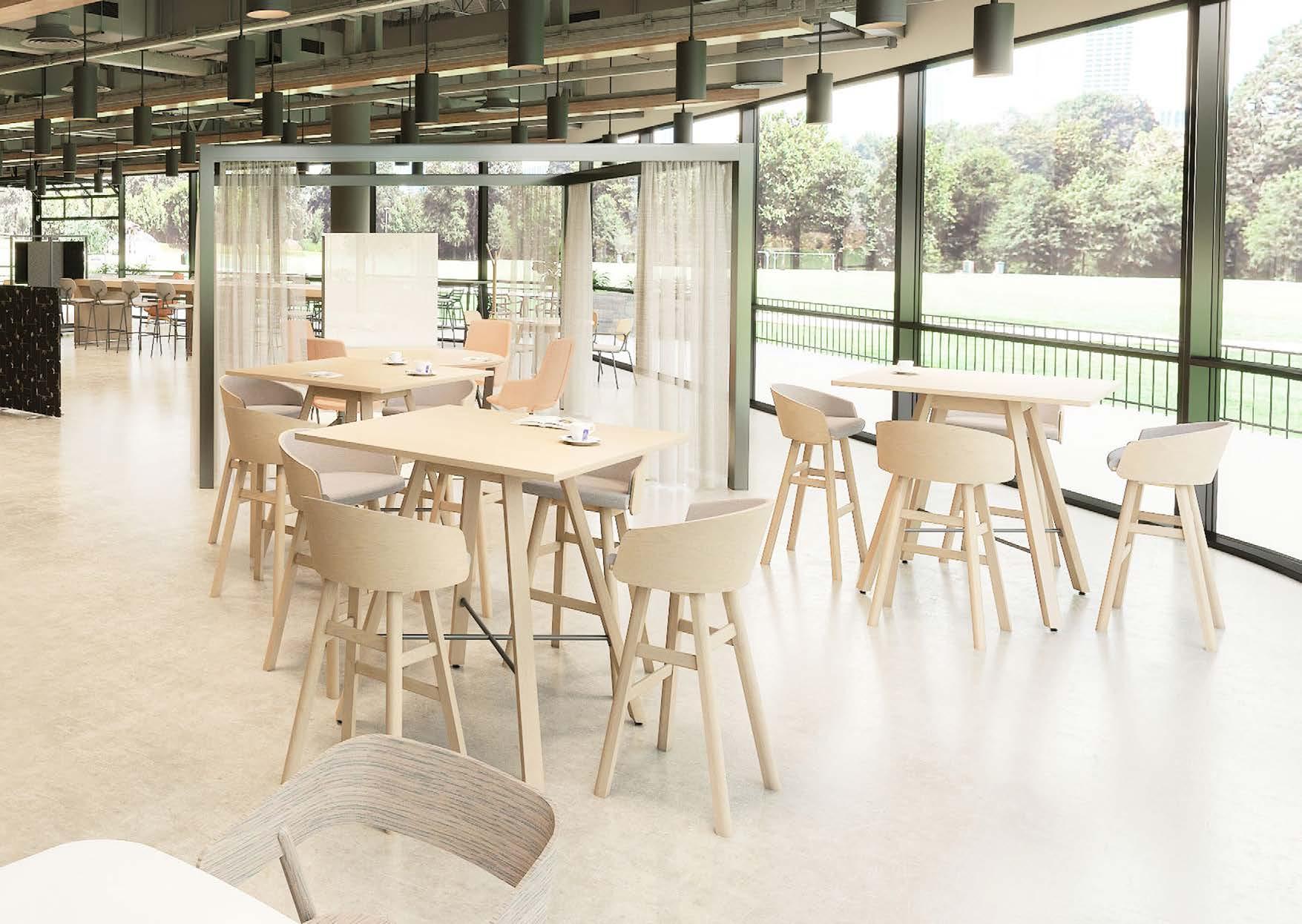

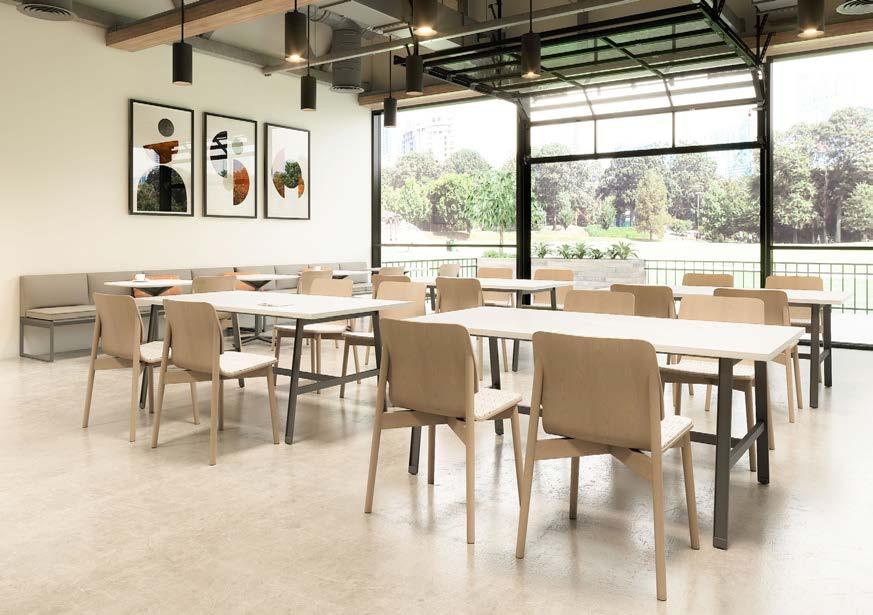
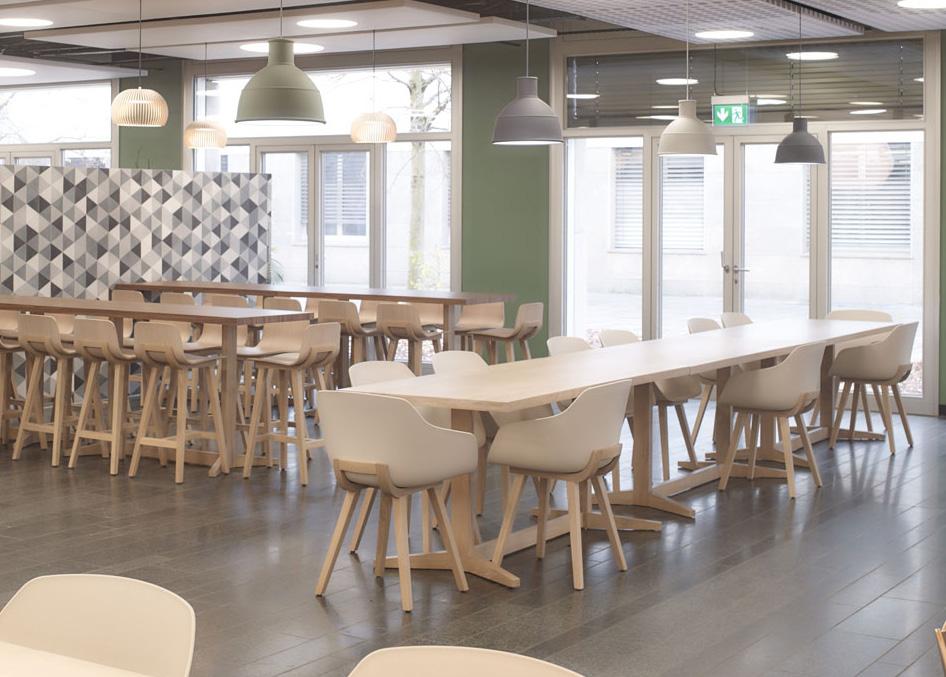
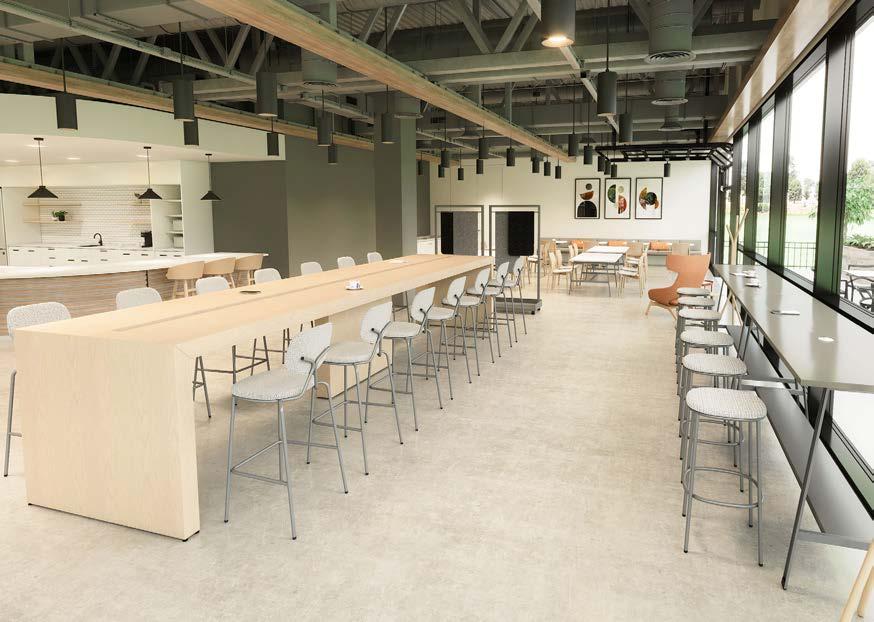
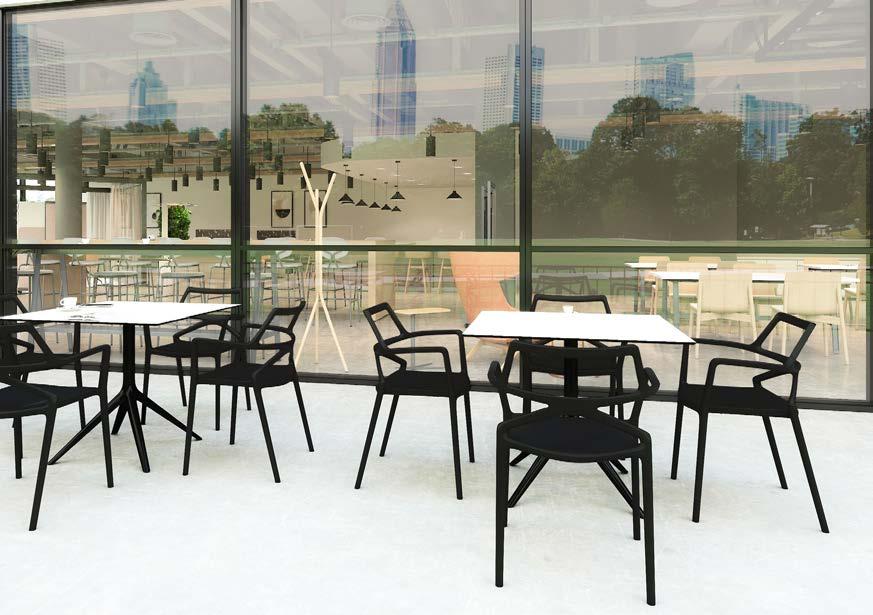
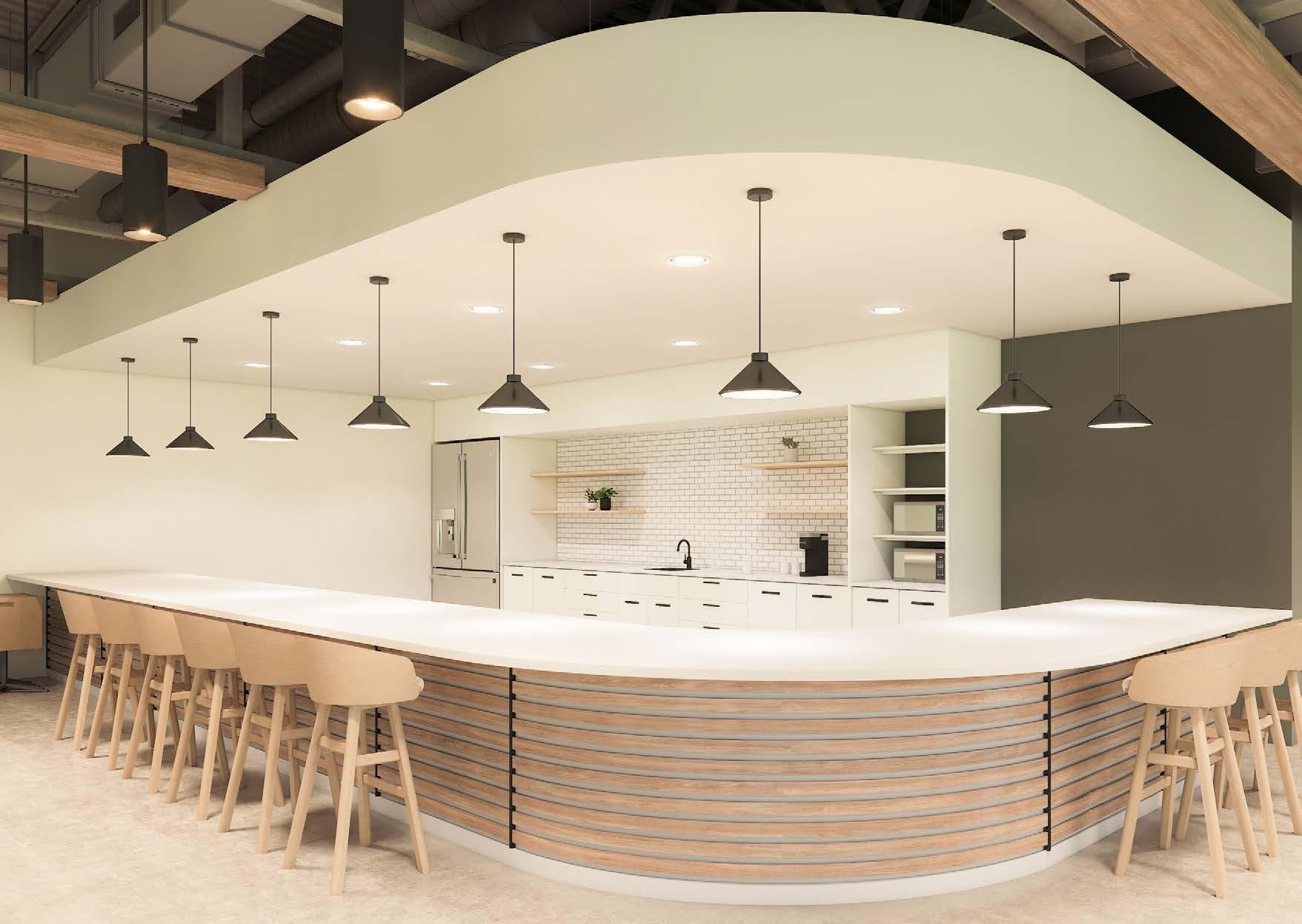
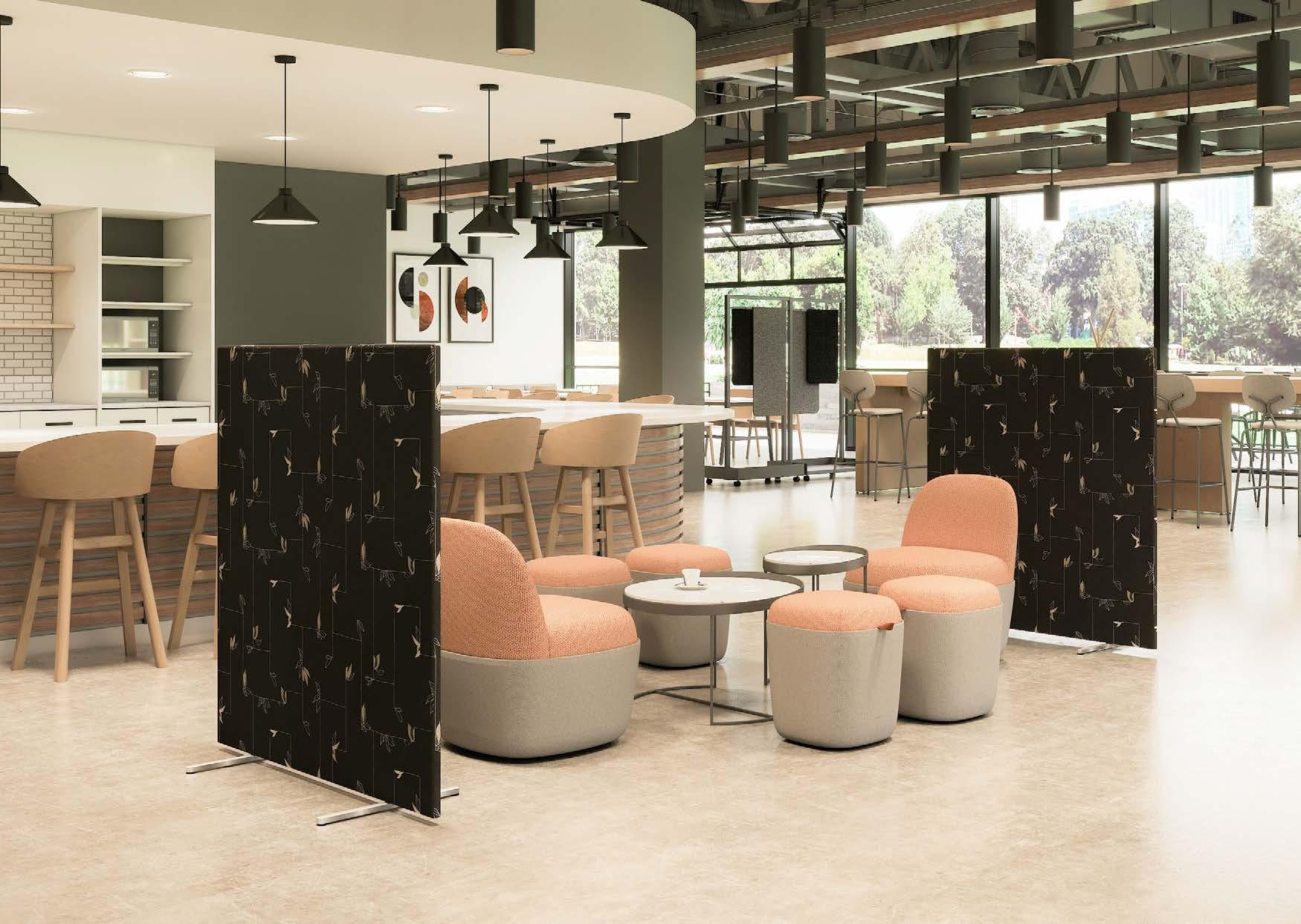
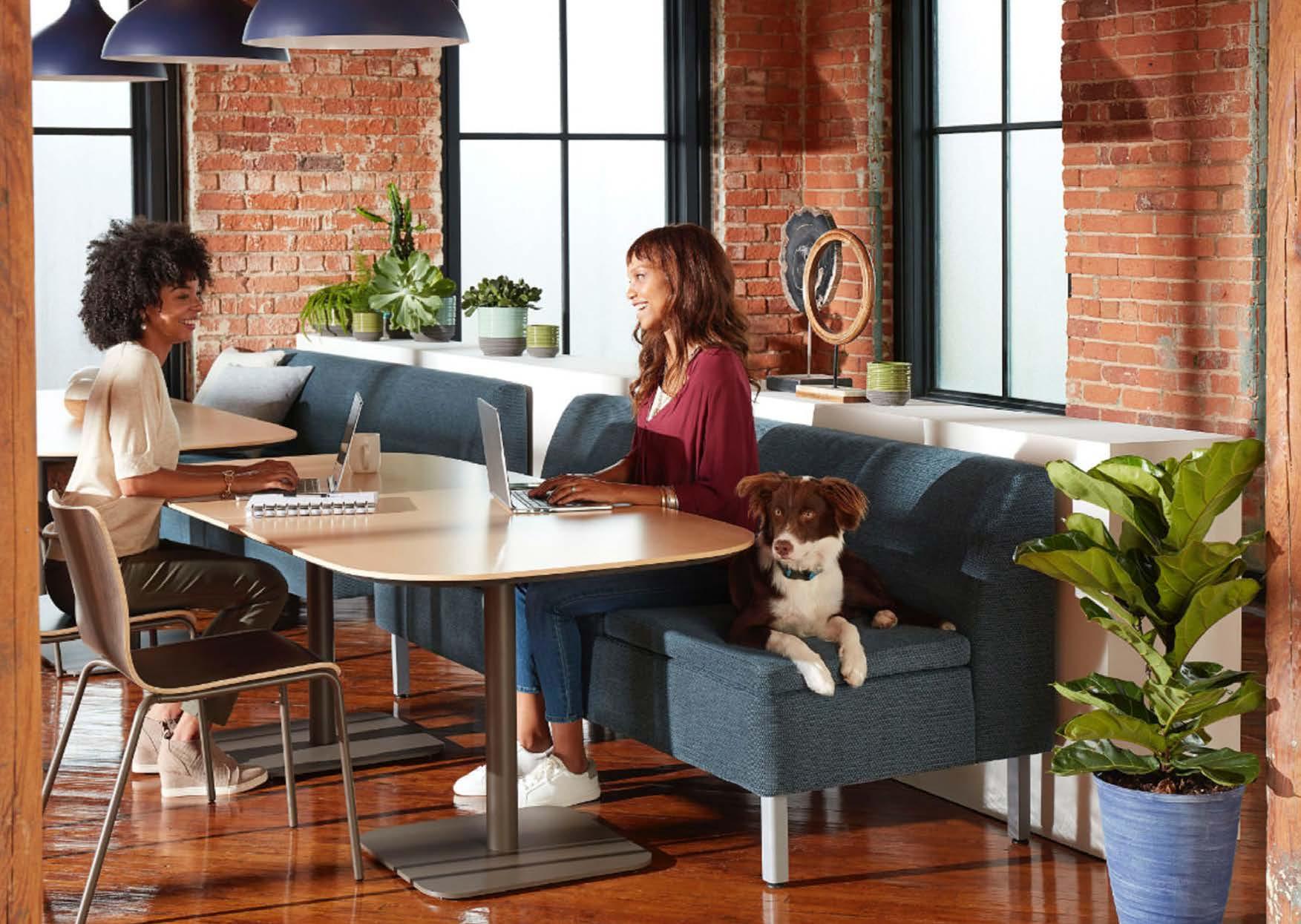
Allow colors and finishes to increase or decrease the formality.
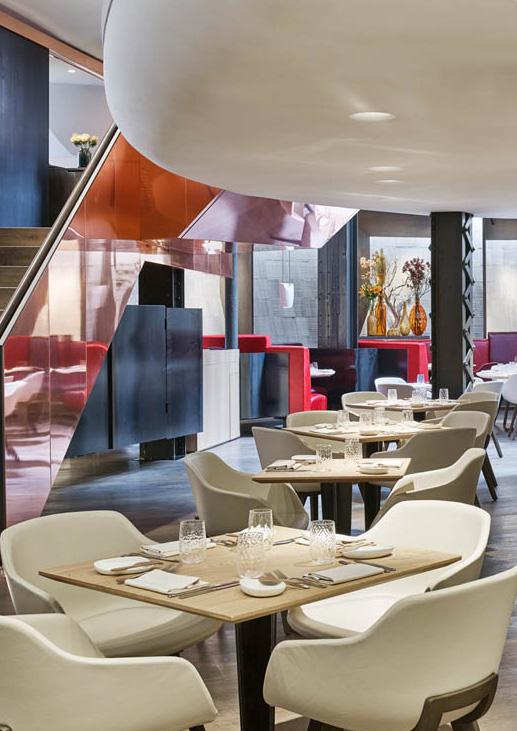
Providing a comfortable and inviting area away from work desks and designing it to provide elements that feel more like home, will address what employees are looking for, when they return to the office.
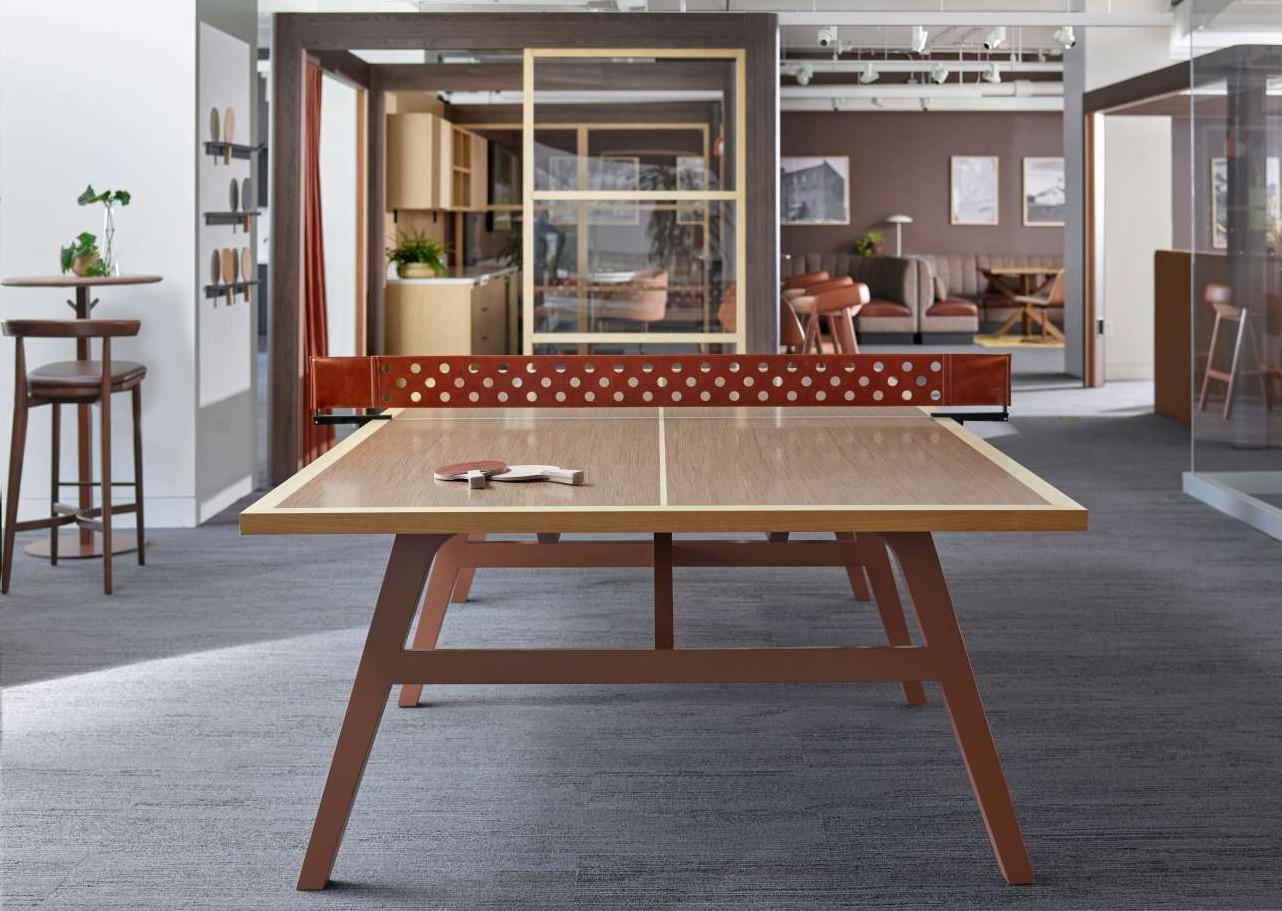
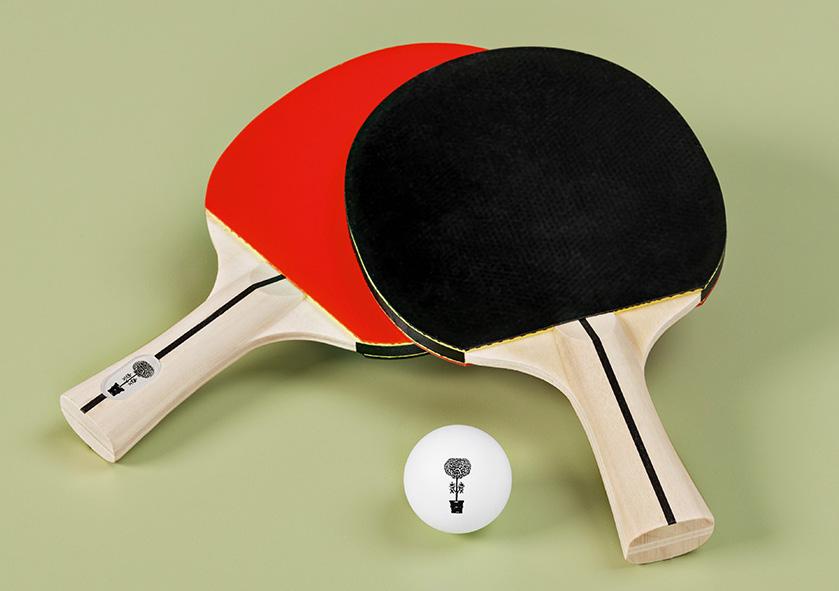
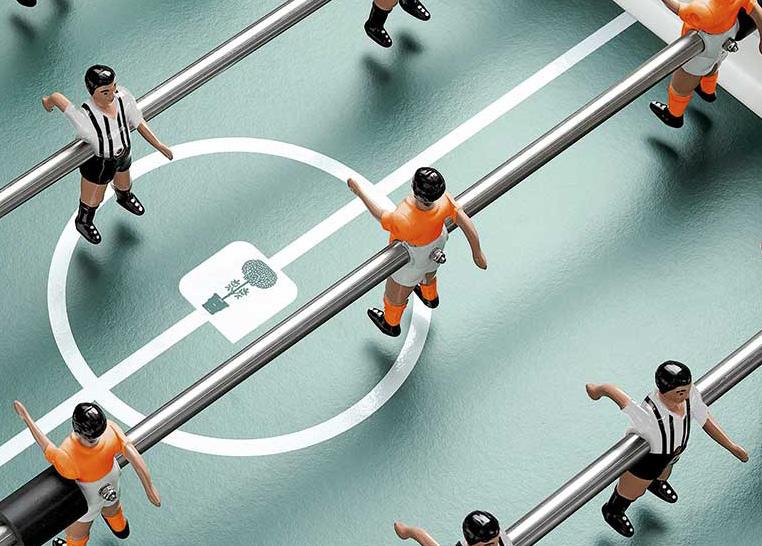
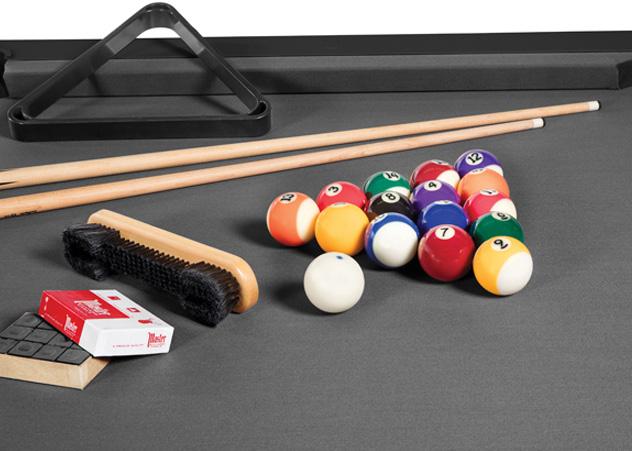

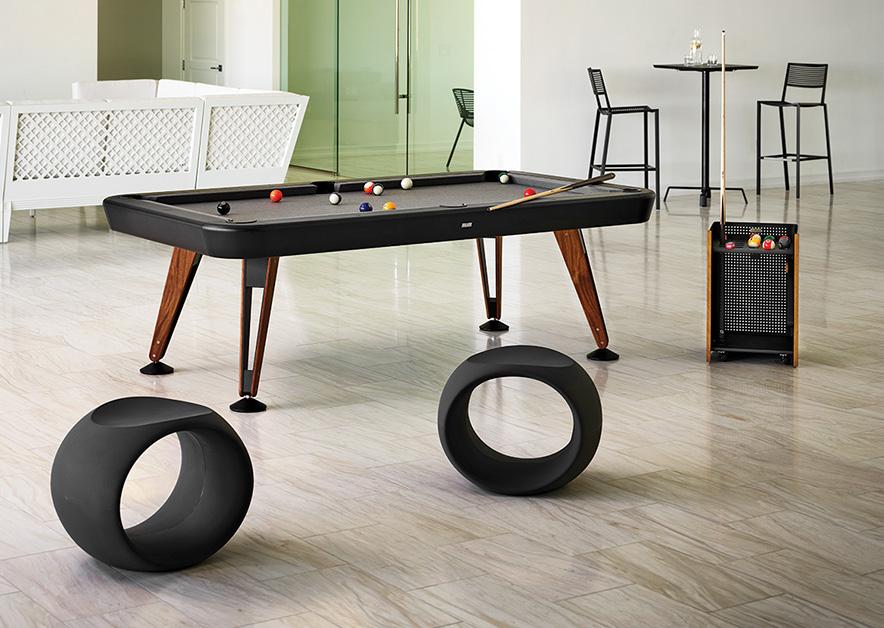
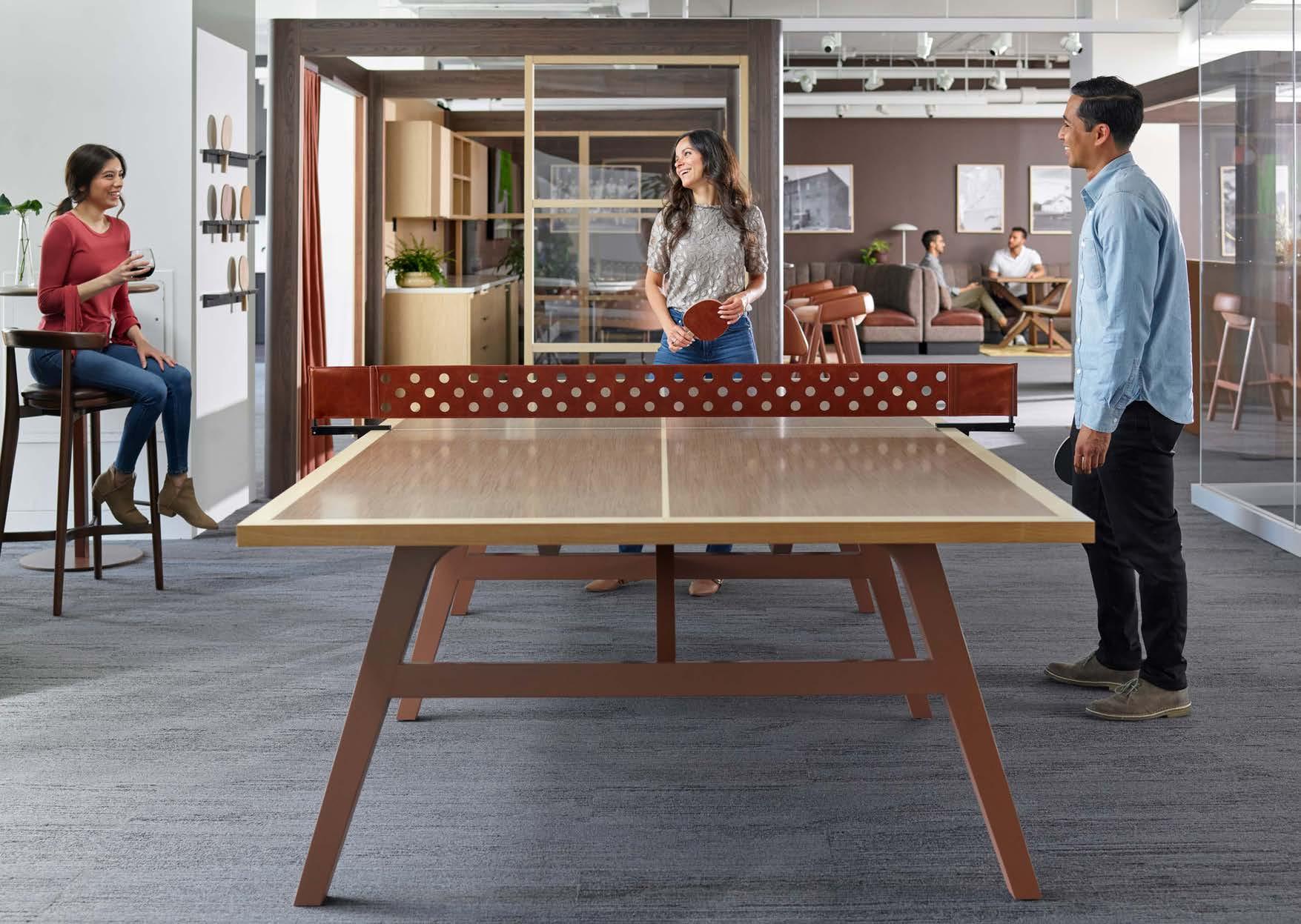
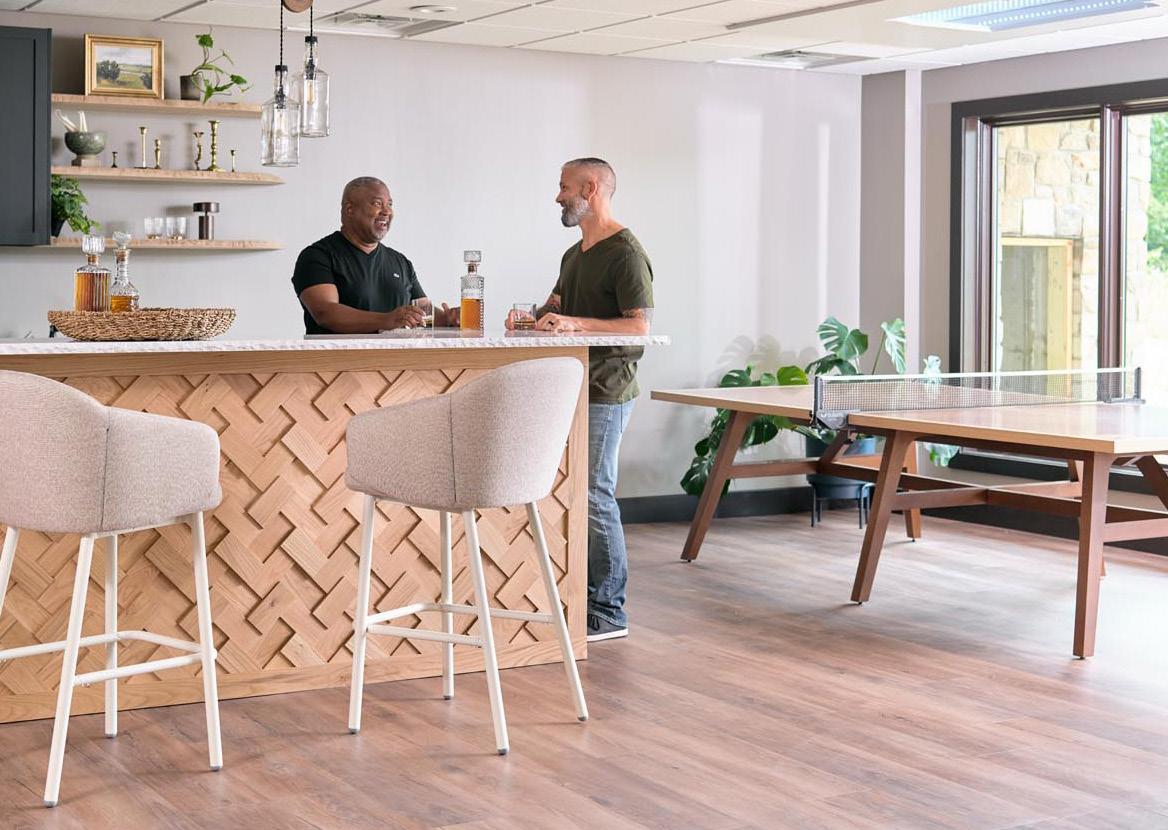
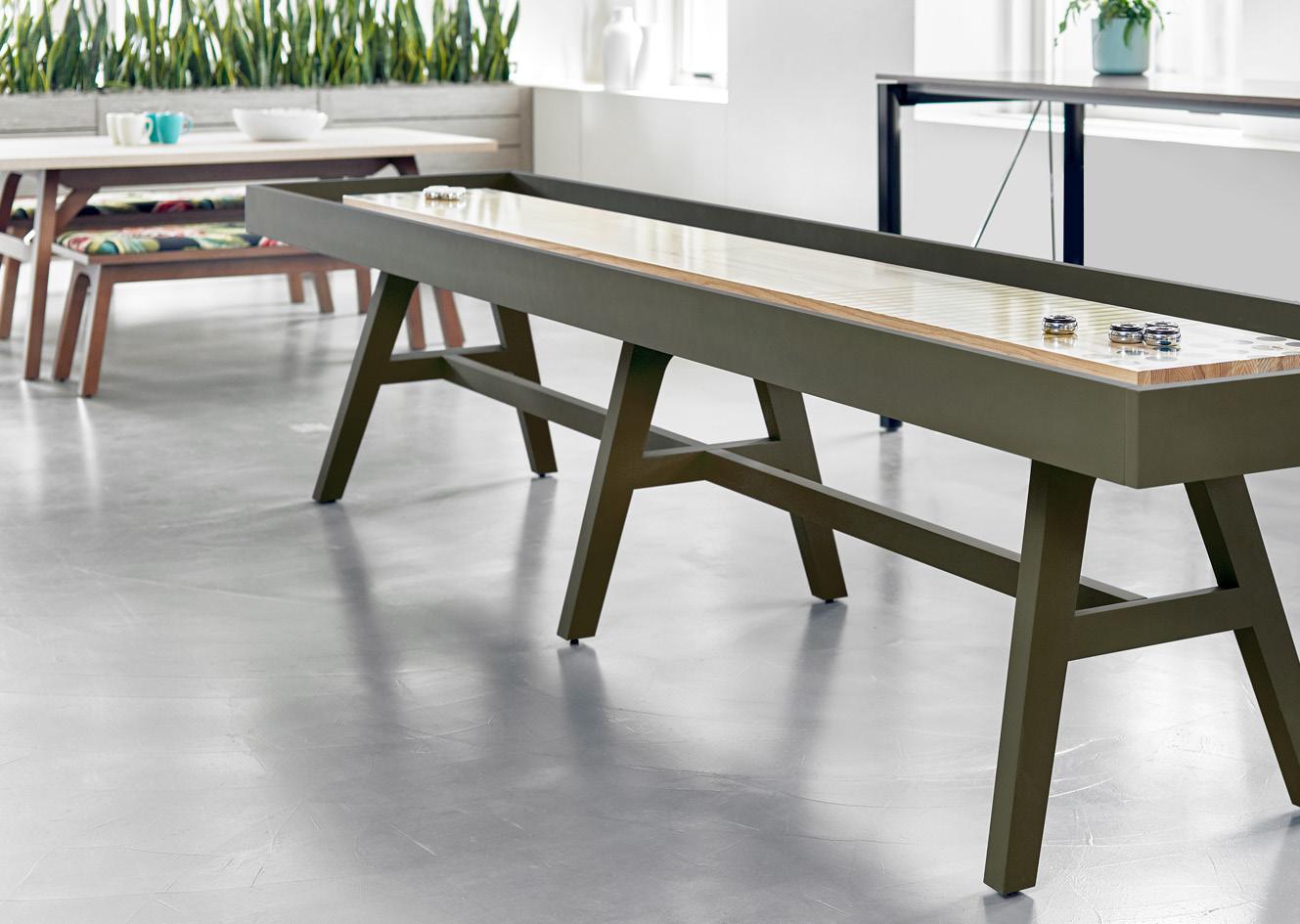
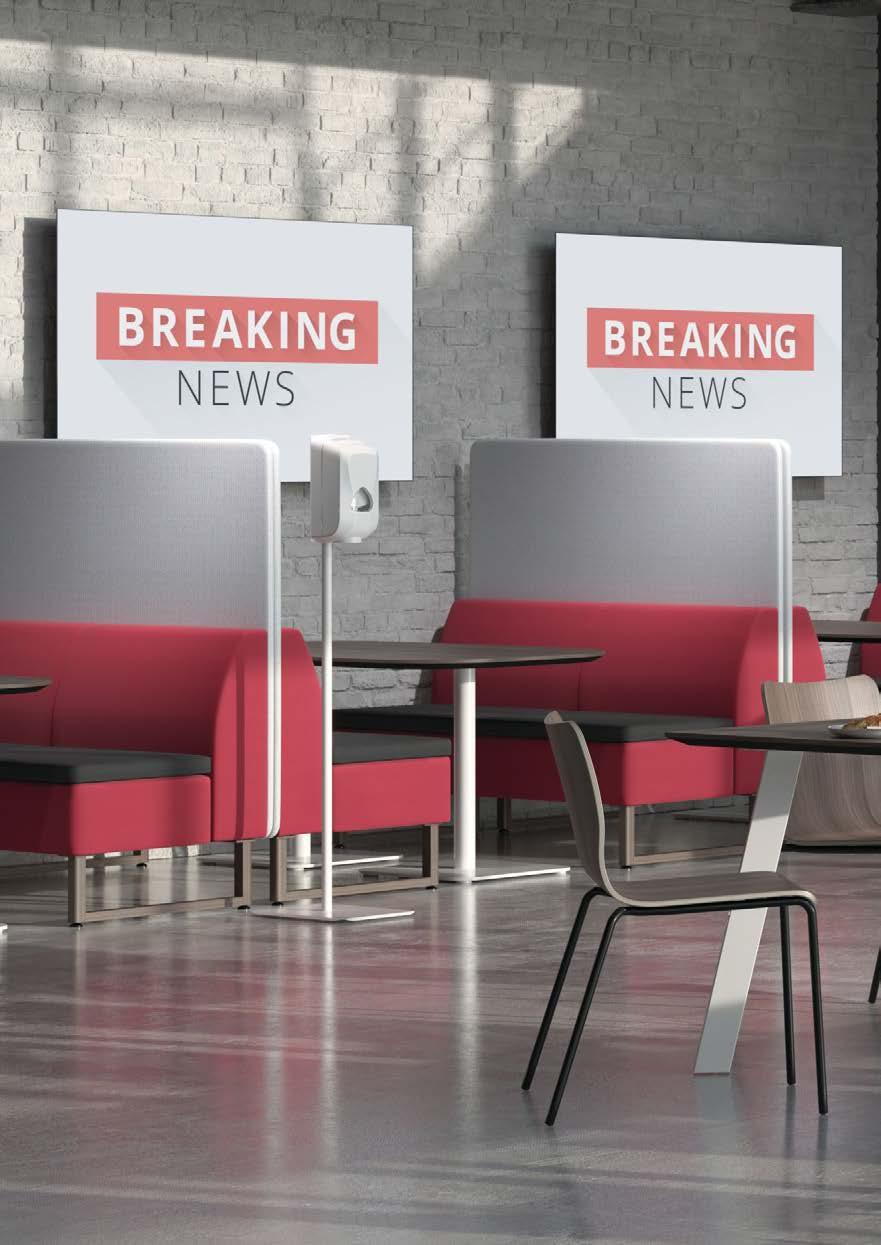
Motivate to move away from the desk to enjoy healthy food and breaks.

